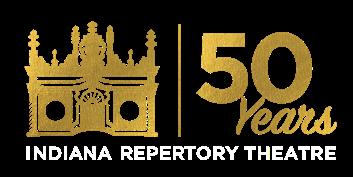







The spirit of giving is strong at OneAmerica®. A community leader since our inception, we proudly support organizations, like the Indiana Repertory Theatre, that make a difference. OneAmerica is pleased to have further extended our support of the IRT. Our community commitment focuses on strategically investing in education; workforce development; community safety, wellness and success; and community vibrancy.






Rooted in the heart of Indiana, Indiana Repertory Theatre is committed to building a vital, vibrant, and informed community through the transformational power of live theatre. The Indiana Repertory Theatre produces inclusive, top-quality, professional theatre and community programming to engage, surprise, challenge, and entertain members of the whole community.
The Indiana Repertory Theatre will welcome the whole community, becoming a place of belonging for an ever-expanding audience of all ages and backgrounds seeking meaningful and enjoyable experiences. Using theatre as a springboard for both personal reflection and community discussion, our productions and programs will inspire our neighbors to learn about themselves and others. As the largest nonprofit theatre in the state of Indiana, IRT’s goal is to help make Indiana a dynamic home of cultural expression, economic vitality, and a diverse and engaged citizenry.
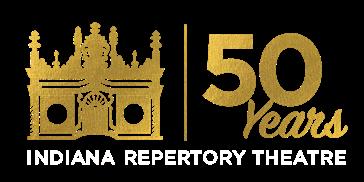
• Producing diverse plays, we strive to provide insight and celebrate human relationships through the unique vision of the playwright.
• Employing professional artists of the highest quality, we nurture an environment that allows them to grow and thrive on our stages and in our communities.
• We foster a creative environment where arts, education, corporate, civic, and cultural organizations collaborate to benefit our community
• Our community thrives when diverse voices and peoples gather to make, watch, and support theatre.
• It is our responsibility as a community resource to open our doors wide, welcoming all to our high-quality, relevant art.
• We acknowledge our history of privilege as a predominantly White institution as an initial and necessary step toward effectively supporting the dismantling of systems of oppression.
• To be an anti-racist organization we must seek knowledge and understanding to identify discriminatory practices and increase cultural awareness in collaboration with, and learning directly from, BIPOC, Lesbian, Gay, Bisexual, Transgender, Queer, Intersex (LGBTQI+), functionally diverse, and other historically excluded communities.
• As a public-benefit organization, we focus on community service, artistic integrity, and creating a range of ticket prices that allow all segments of our community to attend.
• Fiscal responsibility and financial security fuel our institutional sustainability.
• To ensure institutional longevity, we continue to grow our endowment fund as a resource for future development.
Due to union agreements, photography, video, and audio recording are not permitted during the performance. The videotaping of productions is a violation of United States Copyright Law and an actionable Federal Offense.
Every community owes its existence and vitality to generations from around the world who contributed their hopes, dreams, and energy to making the history that led to this moment. Some were brought here or removed from here against their will, some were drawn to leave their distant homes in hope of a better life, and some have lived on this land for more generations than can be counted. Acknowledgment of the land which the IRT now occupies is critical to building mutual respect and connection across all barriers of heritage.
We want to acknowledge that what we now call Indiana is on the ancestral lands of many indigenous peoples including the Miami, Piankashaw, Wea, Potawatomi, Kickapoo, Delaware, and Shawnee. We pay respects to their elders past and present. Please take a moment to consider the many legacies of displacement, migration, violence, and settlement that bring us together here today.
This land acknowledgment was created in collaboration with Scott Shoemaker, PhD (Miami Tribe of Oklahoma). Portions of this acknowledgment come from the U.S. Department of Arts and Culture (usdac.us).

The historic Indiana Theatre was built in 1927, a time when the shameful practice of racial segregation was the standard in movie theatres and public buildings across the United States. The Indiana Theatre building was originally segregated and at some point in its history this practice ceased. Many Indiana residents and their families’ heritage stories recall being treated as less than equal citizens in this building, with some even being barred from entering. We cannot erase this history.
We honor and respect all those who have faced discrimination and harm in this building. We strive every day to make the IRT a place that welcomes all people.

The Indiana Repertory Theatre was founded in 1972 by Ben Mordecai, Greg Poggi, and Ed Stern. Since then, it has grown into one of the leading regional theatres in the country, as well as one of the top-flight cultural institutions in the city and state. In 1991 Indiana’s General Assembly designated the IRT as “Theatre Laureate” of the state of Indiana. The IRT’s national reputation has been confirmed by prestigious grants from the National Endowment for the Arts, the Lila Wallace–Reader’s Digest Fund, the Theatre Communications Group–Pew Charitable Trusts, the Shubert Foundation, and the Kresge Foundation, and by a Joyce Award from the Joyce Foundation.
The IRT remains the largest fully professional resident not-for-profit theatre in the state, providing 100,000 live professional theatre experiences for its audience in a typical season. The Theatre regularly serves thousands of students from more than half of Indiana’s 92 counties, making the IRT one of the most youth-oriented professional theatres in the country. A staff of year-round employees creates seven productions exclusively for Indiana audiences. Actors, directors, and designers are members of professional stage unions.
The IRT’s history has been enacted in two historic downtown theatres. The Athenaeum Turners Building housed the company’s first eight seasons. Since 1980 the IRT has occupied the 1927 Indiana Theatre, which was renovated to contain three performance spaces (OneAmerica Stage, Upperstage, and Cabaret) and work spaces, reviving this historic downtown entertainment site.
To keep ticket prices and services affordable for the entire community, the IRT operates as a not-for-profit organization, deriving more than 50% of its operating income from contributions. The theatre is generously supported by foundations, corporations, and individuals, an investment which recognizes the IRT’s mission-based commitment to serving Central Indiana with top-quality theatrical fare
The OneAmerica Season includes six productions from classical to contemporary, including the INclusion Series.
Young Playwrights in Process The IRT offers Young Playwrights in Process (YPiP), a playwriting contest and workshop for Indiana middle and high school students.
Community Gathering Place Located in a beautiful historic landmark, the IRT offers a wide variety of unique and adaptable spaces for family, business, and community gatherings of all types. Please email Jacob Lang, House Manager, at jlang@irtlive.comor call 317.916.4872 for more information.
Opportunities The IRT depends on the generous donation of time and energy by volunteer ushers; please email Jacob Lang, House Manager, at jlang@irtlive.comor call 317.916.4872 to learn how you can become involved.
Meet the Artists Regularly scheduled pre-show chats and post-show discussions offer audiences unique insights into each production.
Student Matinees The IRT continues a long-time commitment to student audiences with live school-day student matinee performances of all IRT productions. These performances are augmented with educational activities and curriculum support materials.
Educational Programs Auxiliary services offered include visiting artists in the classroom, study guides, pre- and post-show discussions, and guided tours of the IRT’s facilities.
Classes From creative dramatics to audition workshops to Shakespeare seminars, the IRT offers a wide array of personal learning opportunities for all ages, including our Summer Youth Workshops. Call 317.916.4842 for further information.



















We strive to celebrate and serve the diverse people and cultures that make up our whole community. The IRT is committed to creating and maintaining an antiracist theatre that is inclusive, safe, respectful, and accessible.

Whether you have been coming for years or are here for the first time—welcome to your Theatre!
• Our community thrives when diverse voices and peoples gather to make, watch, and support theatre.
• It is our responsibility as a community resource to open our doors wide, welcoming all to our high-quality, relevant art.
• We must acknowledge our history of privilege as a Predominantly White Institution in order to effectively support dismantling systems of oppression.
• In order to be an antiracist and inclusive organization we must seek knowledge and understanding to identify discriminatory practices and increase cultural awareness in collaboration with, and learning directly from, BIPOC, Lesbian, Gay, Bisexual, Transgender, Queer, Intersex (LGBTQI+), functionally diverse, and other historically excluded communities.
• We will represent and engage the diverse people, cultures, and communities of central Indiana.
• We will employ more people of color, with a goal of 40% of all new hires being BIPOC, and foster an inclusive culture of artists, staff, board, and vendors.
• We will continue and deepen our Inclusion, Diversity, Equity, and Access (IDEA) training for all board and staff.
• We will be accessible to all audiences inviting those who have been unheard or unseen in the past, including functionally diverse people, BIPOC, LGBTQI+, and under-resourced communities.
If you would like to read more about our Inclusion, Diversity, Equity, and Access (IDEA) work, go to irtlive.com/about/idea.

 Margot Lacy Eccles Artistic Director
Margot Lacy Eccles Artistic Director
Creating world-class professional theatre for Central Indiana audiences of all ages has remained a career-long passion for Janet Allen. After nearly 40 years of service, Janet will retire at the end of this, IRT’s 50th anniversary season, with gratitude for all the artists, audiences, administrators, and artisans who have delighted her over the years.
During Janet’s tenure, the IRT has significantly diversified its services to both adults and children, and solidified its reputation as a top-flight regional theatre dedicated to diverse programming and production quality. Janet’s passion for nurturing playwrights has led to a fruitful relationship with James Still, the IRT’s playwright-in-residence for 25 years, and the creation of the Indiana Series—plays that examine Hoosier and Midwestern place-making. Her work has brought the theatre prestigious grants from the Pew Charitable Trusts, the Joyce Foundation, and the Doris Duke Foundation, as well as numerous grants from the National Endowment for the Arts.
Among the memorable productions Janet has directed on the IRT’s stages are TheGlassMenagerie(1999), Ah!Wilderness (2002), TheDrawerBoy(2004), James Still’s TheHouseThat JackBuilt(2012 & 2021), ToKillaMockingbird(2016), Looking OverthePresident’sShoulder(2008 & 2017), TheDiaryofAnne Frank(2011 & 2018), and Cyrano(2021). This season she directed AChristmasCarol

MARGOT LACY ECCLES WAS A LEADING PHILANTHROPIC SUPPORTER OF THE ARTS AND HUMANITIES. THE INDIANA REPERTORY THEATRE CHERISHES ITS HISTORY WITH MRS. ECCLES AS A SUBSCRIBER, BOARD MEMBER, DONOR, AND CHAMPION OF OUR ORGANIZATION IN BOTH ITS EDUCATIONAL AND ARTISTIC LEADERSHIP. IN RECOGNITION OF MRS. ECCLES’S LEGACY AS BENEFACTOR AND ADVISOR, THE INDIANA REPERTORY THEATRE IS PROUD TO HAVE NAMED ITS ARTISTIC DIRECTOR POSITION THE MARGOT LACY ECCLES ARTISTIC DIRECTOR.
Janet’s leadership skills and community service have been recognized by the Network of Women in Business–IBJ’s “Influential Women in Business” Award, a Distinguished Hoosier Award conferred by Governor Frank O’Bannon, Girls Inc.’s Touchstone Award for Arts Leadership, and the Indiana Commission on Women’s Torchbearer Award. She is a proud alum of the Stanley K. Lacy Leadership Program (Class XIX) and a 2013-2014 Indy Arts Council Creative Renewal Arts Fellow. She is a member of two honorary gatherings in the America Theatre: the College of Fellows of the American Theatre, and the National Theatre Conference. In 2017 she was named an Indiana Living Legend by the Indiana Historical Society. In August 2022, she was honored with a May Wright Sewall Leadership Award by the Indianapolis Propylaeum.
Janet is a member of the Indianapolis Woman’s Club, the Gathering, and Congregation Beth-El Zedeck. She lives with her husband, Joel Grynheim, and a lovely canine mutt, in a downtown house built in 1855. They enjoy following the adventures of their three adult children and their grandchild, who are thriving on various continents.

Suzanne is a 24-year veteran of the IRT and is proud to work alongside her mentor and friend, Janet Allen, as co-CEO of the Theatre. Suzanne oversees all of the administrative functions of the organization, including marketing, fundraising, ticket office, house management, finance, human resources, information technology, and building operations.
During her tenure, the Theatre has secured a long-term lease for the building with the City of Indianapolis and renovated the Upperstage Lobby and restrooms. In June 2020 the Theatre surpassed its $18.5 million goal for its Front and Center campaign, raising $20 million.
Suzanne was elected Treasurer of the League of Resident Theatres, a nationwide association of regional theatres, and she serves as a member of their board of directors. In 2021 and 2016, she was honored to serve as a panelist for Shakespeare in American Communities in cooperation with Arts Midwest.
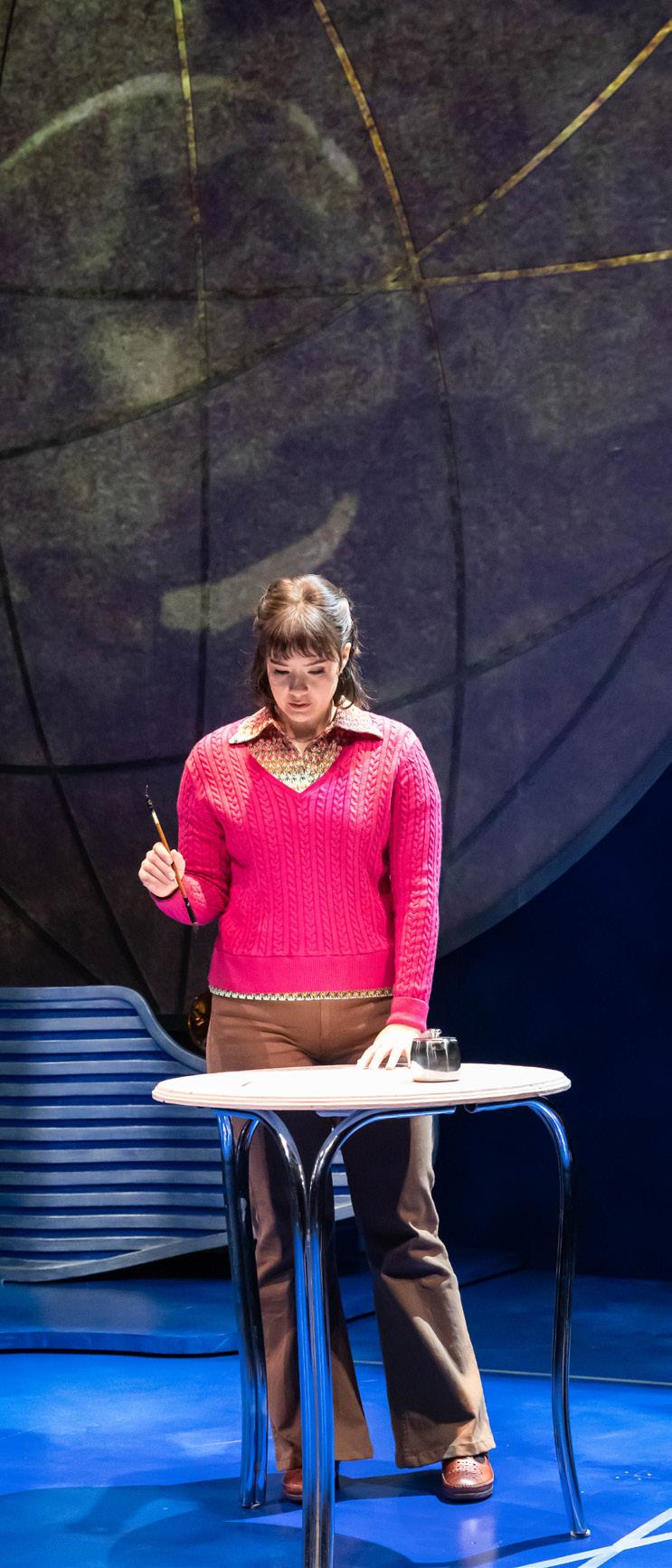

Suzanne is active in the community, having been the treasurer of Irish Fest for nine years, a member of the board of directors and treasurer of the Day Nursery Association (now Early Learning Indiana) for three years, and a past treasurer of IndyFringe.
Suzanne is a graduate of the College of William & Mary (undergraduate) and Indiana University (M.B.A.). She started her career as a CPA; prior to coming to Indianapolis, she worked in finance for more than 10 years, living in such varied locales as Washington, DC; Dallas, Texas; Frankfurt, Germany; Honolulu, Hawaii; and even working for three months in Auckland, New Zealand (where, yes, she went bungee jumping). She is a proud alum of the Stanley K. Lacy Leadership Program (Class XXXI). Suzanne lives in the Old Northside with her 19-year-old son, Jackson, and their foxhound rescue dog, Gertie, and spends some of her downtime in Palatine, Illinois, with her partner, Todd Wiencek.
Playwright-in-Residence

During his 25 years as playwright-in-residence, IRT audiences have seen all three plays in James’s “Jack Plays” trilogy (The HouseThatJackBuilt,Appoggiatura,and Miranda), as well as LookingOverthePresident’sShoulder;AndThenTheyCame forMe:RememberingtheWorldofAnneFrank;AmberWaves; TheLittleChoo-ChooThatThinksSheCan;April4,1968:Before WeForgotHowtoDream;ILovetoEat:CookingwithJames Beard;TheVelveteenRabbit;TheHeavensAreHunginBlack; InterpretingWilliam;IronKisses;TheGentlemanfromIndiana; SearchingforEden;HeHeldMeGrand,and TheSecretHistory oftheFuture.James has directed many productions at the IRT, including AChristmasCarol,TwelveAngryMen,ADoll’sHouse Part2,TheOriginalist,Dial“M”forMurder,TheMysteryofIrma Vep,Red,OtherDesertCities,GodofCarnage,Becky’sNewCar, RabbitHole,and Doubt. This season he directs Oedipus.


James is a member of the National Theatre Conference in New York, and a Kennedy Center inductee of the College of Fellows of the American Theatre. Other honors include the Eugene and Marilyn Glick Indiana Authors Award for drama for TheJack Plays, the Todd McNerney New Play Prize from the Spoleto Festival, the William Inge Festival’s Otis Guernsey New Voices Award, and the Orlin Corey Medallion from the Children’s Theatre Foundation of America. His plays have been nominated four times for the Pulitzer Prize, and have been developed at Robert Redford’s Sundance, the New Harmony Project, Eugene
O’Neill Playwrights Conference, Seven Devils Playwrights Conference, Colorado New Play Summit, the Lark, Launch Pad at UC–Santa Barbara, Telluride Playwright’s Festival, New Visions/New Voices, and Fresh Ink. Three of his plays have received the Distinguished Play Award from the American Alliance for Theatre & Education. James’s work has been produced throughout the United States, Canada, China, Japan, Europe, South Africa, Australia, and New Zealand.
Current projects include his new plays TheCratchits (inAmerica),PlaysaboutLonging,(A)NewWorld,Dinosaur(s),JoyWavestoYoufromaDistance,and new plays commissioned by Prison Performing Arts (St. Louis) and American Blues (Chicago).
James also works in television and film and has been nominated for five Emmys and a Television Critics Association Award; he has twice been a finalist for the Humanitas Prize. He wrote the short film ACityofStoriescommissioned by the New Harmony Project and recently featured in the Heartland Film Festival’s Indy Shorts. James was a producer and head writer for the TLC series PAZ, the head writer for Maurice Sendak’s LittleBear, and writer for the Bill Cosby series LittleBill.He wrote TheLittleBearMovieand TheMiffy Movieas well as the feature film TheVelocityofGary. James grew up in Kansas and lives in Los Angeles.
Ben is a director, educator, and community engagement specialist whose passion for multigenerational theatre has influenced his work across the country. In all of his myriad roles, Ben is guided by the belief that access to high-quality theatre helps build creative, empathetic people and healthy communities.

Ben is thrilled to be in his sixth season at Indiana Repertory Theatre, where he has directed Fahrenheit 451, The Book Club Play, Tuesdays with Morrie, This Wonderful Life, A Christmas Carol, The Little Choo-Choo That Thinks She Can, Elephant & Piggie’s “We Are in a Play!,” and The Town Mouse and the Country Mouse. This season he directs Clue. As associate artistic director, Ben manages casting both locally and nationally, helps guide education and community programming, and connects IRT to new artists and ideas. Dedicated to eradicating systems of oppression, he is an advocate for creating and maintaining an anti-racist culture that breaks down historical barriers of access to the theatre. Along with Sarah Bellamy, IRT’s Equity Consultant, he guides IRT’s work to develop thoughtful, sustainable Inclusion, Diversity, Equity, and Access initiatives.
Ben is the recipient of a Theatre Communications Group Leadership University Award funded by the Andrew

W. Mellon Foundation. The award supported his artistic mentorship at the Children’s Theatre Company in Minneapolis, the nation’s largest theatre for young audiences. Prior to his role at CTC, Ben spent five years in California’s Bay Area, dividing his time between Berkeley Repertory Theatre and the Bay Area Children’s Theatre. In his native Minnesota, Ben was honored to serve on the education staff of Penumbra Theatre Company, the nation’s leading African American theatre, where he helped to expand their education and outreach offerings. His proudest accomplishments during his four years with the company include growing the nationally recognized Summer Institute for Activist Artists into a three-year multidisciplinary social justice theatre training program, developing a multigenerational quilting circle, and helping to create and facilitate a racial equity training program through the company’s RACE workshop series.
Ben holds a degree in theatre arts from the University of Minnesota Twin Cities. He grew up on a small rural farm and fell in love with theatre at the age of eleven. He continues to create for his favorite audience: his five nieces and nephews.

Eric Wilburn
Kathryn Burke
Assistant Ticket Office Manager
Janet Allen
Margot Lacy Eccles Artistic Director
Suzanne Sweeney
Managing Director
Ariana Fisher
Office Administrator
Malia Argüello
Production Manager
Benjamin Hanna
Associate Artistic Director
Hillary Martin Company Manager
Richard J Roberts
Resident Dramaturg
Jane Robison General Manager
James Still Playwright-in-Residence
Erica Anderson Lead Draper
Emily Candelario-Rosa
First Hand
Guy Clark
Costume Director
Heather Hirvela Draper
Niamh Langfitt
Costumer/First Hand
Rebecca Reyes
Wardrobe Supervisor
Brady Clark
Development Systems
Eric J. Olson
Institutional Giving Manager
Kay Swank-Herzog
Individual Giving Manager
Jennifer Turner
Director of Development
Anna E. Barnett
Education Coordinator
Lead Electrician
Beth A. Nuzum
Master Electrician
Kevin Shannon
Electrician
Jeffrey Bledsoe Director of Finance
Jen Carpenter Payroll & Benefits Specialist
Karen Chapman Business Manager
Devon Ginn
Director of Inclusion & Community Partnerships
Kerry Barmann
Associate Director of Marketing
Geneva Denney-Moore
Design & Communications Specialist
Danielle M. Dove
Director of Marketing & Sales
Megan Ebbeskotte
Audience Development Manager
Noelani Langille
Graphic Designer
Claire Dana Charge Scenic Artist
Jim Schumacher
Scenic Artist
Jacki Walburn Scenic Artist
Dameon Cooper Building Manager
Housekeeping
Roger Cunningham
Tonika Miller
Carlton Foster
Jacob Lang
House Manager
Courtney Plummer
Ticket Office Manager
Jay Hemphill
Customer Service Representative
Molly Wible Sweets
Tessitura Administrator
Madelaine Foster
Assistant Properties Shop Manager
Rachelle Martin
Properties Shop Manager
Carpenters
WonJun Brendon Choi
Samantha-Rae Oliver
Chris Fretts
Technical Director
Nick Kilgore
Automation Carpenter
Faith Seltzer
Stage Operations Supervisor
David Sherrill
Master Carpenter
Brittany Hayth
Lead Audio Engineer
Todd Mack Reischman
Resident Sound Designer
Kieran Shay
Audio Video Engineer
Stage Managers
Nathan Garrison
Erin Robson-Smith
Matt Shives
Assistant Stage Managers
Becky Roeber
Isaiah Moore
Production Assistants
Isabella Garza
Andrea Haskett
Corey Hollinger
Doug Sims
Group Sales & Teleservices Manager
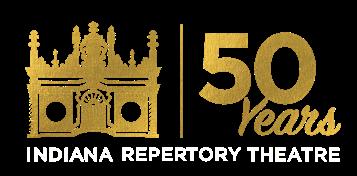

Tara Parchman
Robin Reid
John Simmons
Crowe Horwath
External Auditors
Faegre Drinker
Legal Counsel
Assistant House Managers
Grace Branam
Stacy Brown
Preston Dildine
Dieter Finn
Christine Gordon
Marilyn Hatcher
Lexi Hudson
Sarah James
Marissa Klingler
Claire Martin
Alicia McClendon
Jeff Pigeon
Phoebe Rodgers
Kathy Sax
Karen Sipes
Sam Stucky
Katy Thompson
Bartender
Tina Weaver
Customer Service Representatives
Ashlee Lancaster
Chelsea Senibaldi
Cara Wilson
Lee Edmundson
From its first eight seasons at the historic Athenaeum through the last four decades in the beautiful Indiana Theatre, the IRT has been an important part of the cultural fabric of Indianapolis.
The last two years have been among the most challenging in our history, as they have been for everyone. We are very excited to welcome you in person for our 50-year celebration! Great theatre sparks conversations, thoughtful questions, and ideas that reflect on and enlighten our lives, workplaces, and communities. Whether you’ve been part of the IRT family for years or are a first-time visitor, we are glad you are with us.
I am very grateful for the hard work, dedication, and adaptability of our staff, continuing to bring theatre to our audience in these extraordinary times. We are blessed with amazing leadership and talent. I also want to give a special thank you to all our patrons and partners for their loyal and tireless support, ensuring the IRT’s future for generations to come.
On behalf of the Board of Directors, I thank you for joining us for this golden anniversary season—one which will inspire and entertain.
–MarkE.Shaffer, IRT Board Chair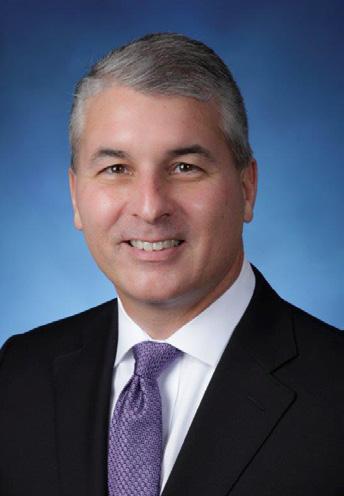
CHAIR
Mark Shaffer
KPMG LLP
VICE CHAIR & CHAIR ELECT
Andrew Michie
OneAmerica Financial Partners, Inc.
Tammara D. Avant
American Electric Power
Kathryn Beiser
Eli Lilly & Company
Michael P. Dinius
Joy Kleinmaier
American Specialty Health
Jill Lacy
The Lacy Foundation
Nadine Givens*
PNC Wealth Management
Noble Consulting Services, Inc.
Laurie Dippold
KAR Auction Services, Inc.
Dan Emerson*
Indianapolis Colts
Troy D. Farmer FORVIS
Tom Froehle*
Faegre Drinker
Ashley Garry Viatris Inc.
Ron Gifford
RDG Strategies LLC
Ricardo L. Guimarães
Indiana University
Kelley School of Business
Julian Harrell
Faegre Drinker
Robert Anker*
Rollin Dick
Berkley Duck*
Dale Duncan*
James W. Freeman
Mike Harrington
Eli Lilly & Company, Retired
Michael N. Heaton
Katz Sapper & Miller, Retired
Holt Hedrick
Calumet Specialty Products Partners, L.P.

Brenda Horn
Ice Miller LLP, Retired
Rebecca Hutton
Leadership Indianapolis
Lauren James
Mitch Daniels
Leadership Foundation
Elisha Modisett Kemp
Corteva Agriscience
Alan Mills
Barnes & Thornburg LLP
Michael Moriarty
Frost Brown Todd, Retired
Brian Payne
Central Indiana
Community Foundation
Peter Racher
Plews Shadley
Racher & Braun LLP
Peter N. Reist
Oxford Financial Group, Ltd.
Susan O. Ringo
Community Volunteer
Myra C. Selby
Ice Miller LLP
Darshan Shah
BioCrossroads
Shelly Smith
Ernst & Young LLP
Sue Smith
Community Volunteer
Amy Waggoner Salesforce
L. Alan Whaley
Ice Miller LLP, Retired
Michael Lee Gradison* (in memoriam)
Margie Herald (in memoriam)
David Klapper
David Kleiman*
Sarah Lechleiter
E. Kirk McKinney Jr. (in memoriam)
Richard O. Morris* (in memoriam)
Jane Schlegel*
Wayne Schmidt
Jerry Semler*
Jack Shaw*
William E. Smith III*
Eugene R. Tempel*
David Whitman*




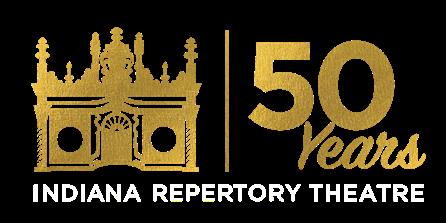
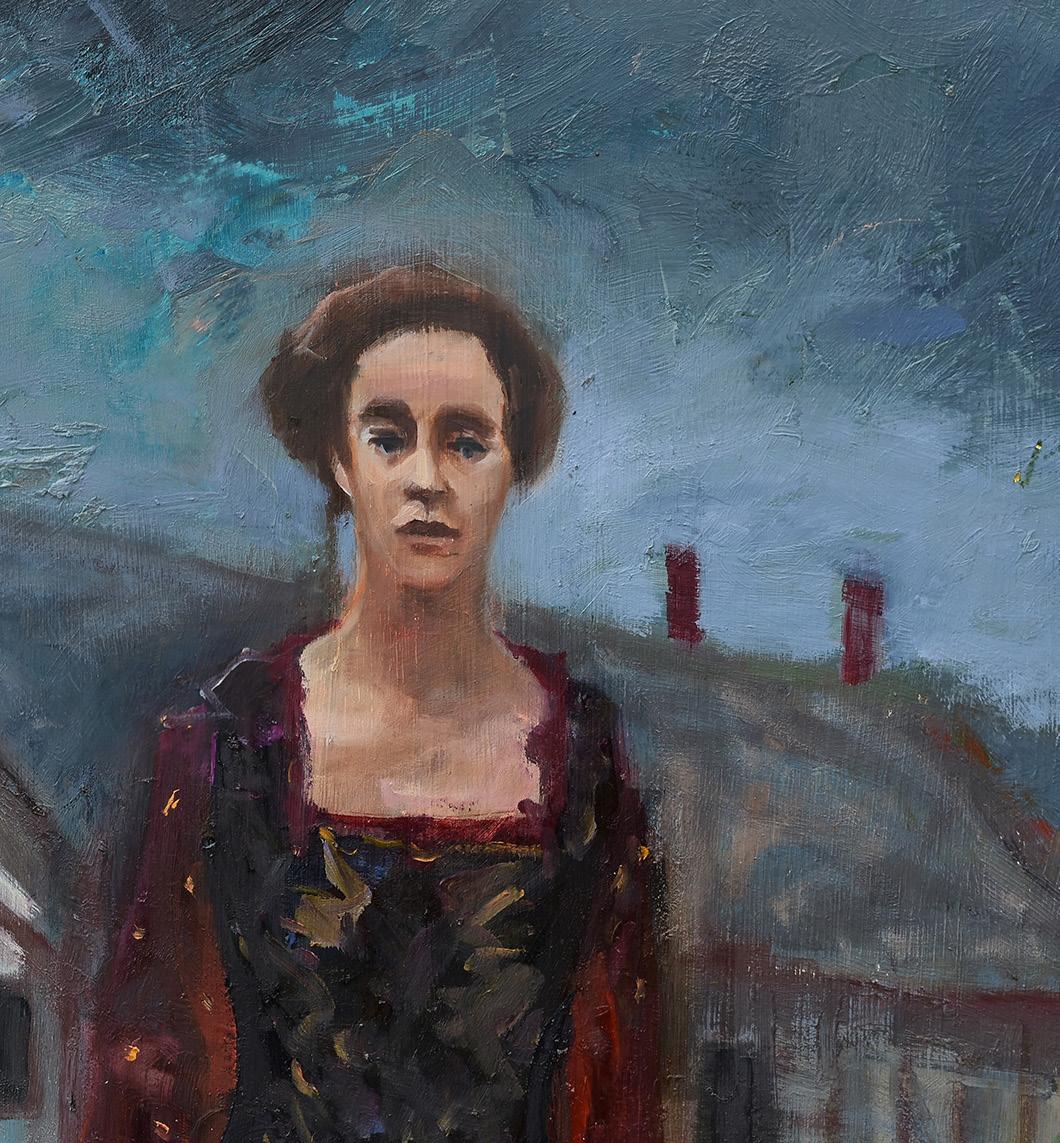

Legacy giving is a simple and impactful way to ensure the live professional theatre you cherish lives on. Making a gift through your financial or estate plans can be very simple— as easy as changing your life insurance or retirement beneficiaries to include the IRT.


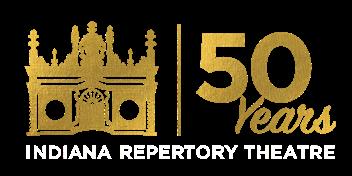
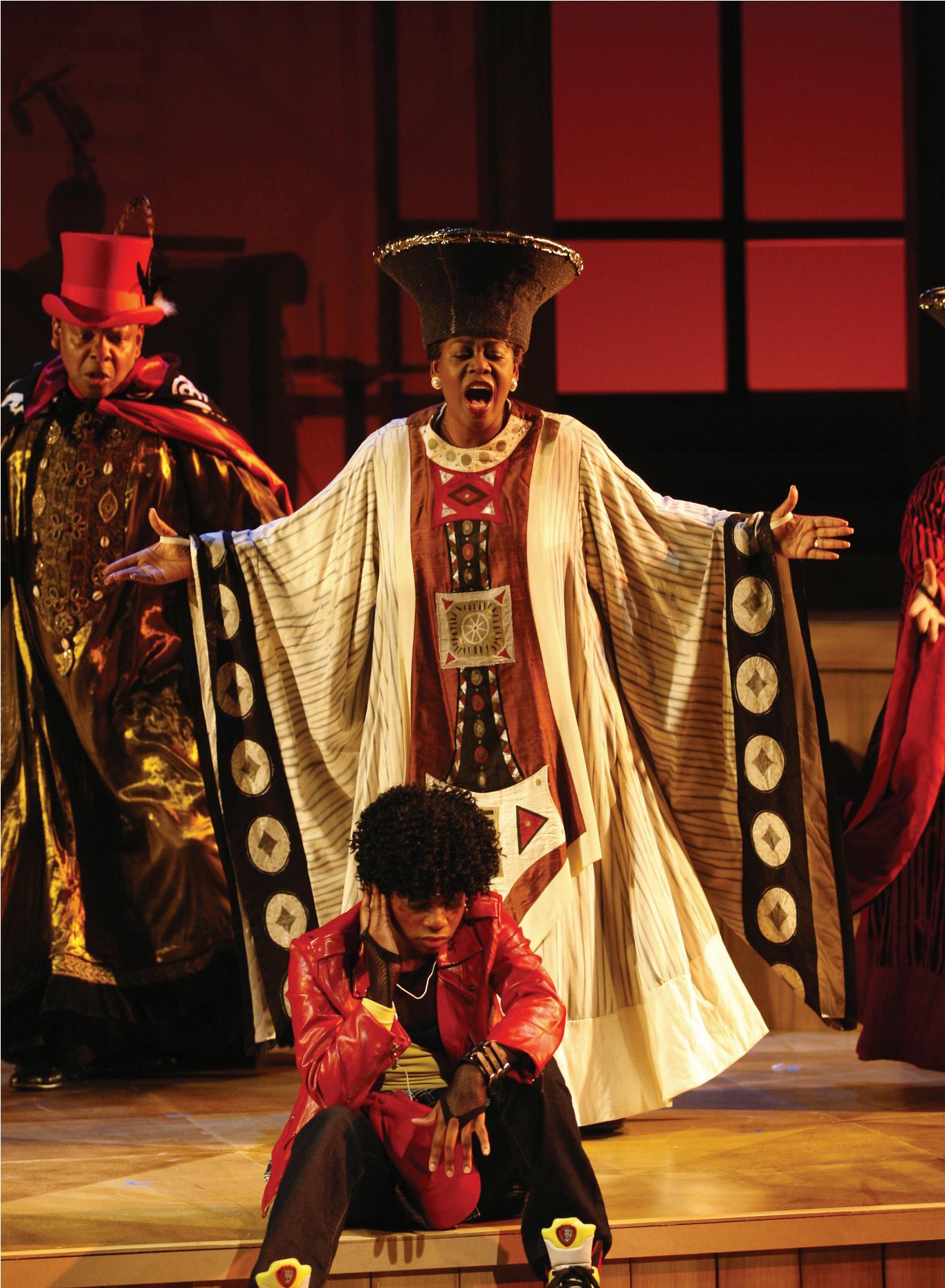

Share your review on social media by tagging us at @IRTLIVE, using #IRTLIVE or by emailing REVIEWS@IRTLIVE.COM


SCENIC DESIGNER: Carey Wong


by
ONEAMERICA MAINSTAGE

FEBRUARY 22 – MARCH 184



Director _______________________________ JAMES STILL
Scenic Designer__________________________ CAREY WONG

Costume Designer___________________ SARA RYUNG CLEMENT
Lighting Designer_________________________ MICHELLE HABECK
Original Music and Sound Design______________ LINDSAY JONES

Movement__________________________ MARIEL GREENLEE
Dramaturg_________________________ RICHARD J ROBERTS
Stage Manager_______________________ NATHAN GARRISON
Casting____________________________ CLAIRE SIMON CSA
LIGHTING DESIGNER: MIchelle Habeck
SEASON 2022-2023


Oedipus_____________ DAVID ALAN ANDERSON

Priest__________________ OLIVIA D. DAWSON
Creon______________________ TRIEU TRAN
Tiresias_____________________ LISA WOLPE
Jocasta_________________ MARY BETH FISHER
Corinthian_______________ RYAN ARTZBERGER
Shepherd____________________ JAN LUCAS
One from Within____________ SOLA THOMPSON Musician/Chorus________________ JED FEDER
Ancient Thebes
APPROXIMATE RUN TIME: 1 hour and 40 minutes.
David Daniel’s adaptation of Oedipus premiered at American Players Theatre in 2021
Fight Choreographer: Leraldo Anzaldua
Music Director: Jed Feder
Dance Captain: Sola Thompson
Fight Captain: Lisa Wolpe
Assistant Scenic Designer: Charlotte Emrys
Assistant Lighting Designer: Arie Jamieson
Understudies: for Oedipus: Ryan Artzberger; for Jocasta: Jan Lucas
Swings: Jean Arnold, Scott Van Wye
Actors and stage managers are members of Actors’ Equity Association, the Union of Professional Actors and Stage Managers in the United States. The director is a member of the Stage Directors and Choreographers Society, a national theatrical labor union. Scenic, costume, lighting, and sound designers are represented by United Scenic Artists Local 829, IATSE.
Photography and recording are forbidden in the Theatre. The videotaping of this production is a violation of United States Copyright Law and an actionable Federal Offense.
Oedipus Rex by Sophocles is widely considered the finest of all Greek tragedies. Like Shakespeare, however, Sophocles did not create his story. The myth of Oedipus originated in the Theban Cycle, a lost epic of Ancient Greek literature that predated the Iliad and the Odyssey. Just as these two sagas tell the story of Troy, the Theban cycle tells the story of the Greek city of Thebes.
The mythic Oedipus is raised in Corinth as the son of King Polybus and Queen Merope. When the Oracle at Delphi tells Oedipus that he is fated to kill his father and marry his mother, he leaves Corinth to escape such a terrible prophecy.




Arriving in Thebes, Oedipus discovers a city terrorized by the Sphynx. The Greek Sphynx has the head of a woman, the body of a lion, and the wings of a bird; it is a demon of destruction and bad luck. The Sphinx has commandeered the gate of Thebes, challenging anyone who tries to enter or leave the city to answer a riddle: “What walks on four feet in the morning, two feet at mid-day, and three feet at night?” Those who cannot answer the riddle—and not one person has yet answered it—are eaten by the Sphynx. Oedipus, however, figures out the answer: Humans. As infants, they crawl on all fours; as adults, they walk upright on two feet: in old age, they walk with canes. In some versions of
the legend, Oedipus kills the Sphynx; in other versions, the Sphynx throws itself off a cliff or eats itself.

Oedipus is rewarded for rescuing Thebes by marrying Queen Jocasta, recent widow of King Laius. Together, Oedipus and Jocasta have two sons and two daughters. King Oedipus is much loved by the populace. But after several years, a plague strikes the city, bringing disease to people, livestock, and crops. Oedipus sends his wife Jocasta’s brother Creon to Delphi to consult the Oracle for help. This is where the play OedipusRexbegins.
Creon returns with the Oracle’s pronouncement: the murderer of King Laius must be found and brought to justice. Oedipus curses the killer and vows to find him and exile him. Creon suggests consulting Tiresias, a highly respected seer, who warns Oedipus to stop the search. In a heated argument, Tiresias accuses Oedipus himself of the crime. Oedipus charges Creon and Tiresias with conspiring against him. Queen Jocasta tries to stop the fight between her brother and her husband. The circle of witnesses expands to include a man from Corinth, who arrives with fateful news about King Polybus, and a shepherd who hides a terrible secret. In the end, Oedipus’s curse is fulfilled, to the horror of all who see.
South African social rights activist and Archbishop Desmond Tutu explained the philosophy of ubuntuas, “My humanity is bound up in yours, for we can only be human together.” It manifests the idea that humans cannot exist in isolation. We depend on connection, community, and caring. We add to and aid our communities. We march, we fill sand bags, we raise money, we help rebuild, we pitch in, we volunteer, we go to funeral services, we hug each other, we make casseroles…. In times of tragedy, we have a desperate need to do for each other. The poet, soldier, and clergyman John Donne wrote, “No man is an island entire of itself; every man is a piece of the continent, a part of the main.”
Some of you reading this have been coming to IRT for years. You’ve given your time, donated your money, dragged your friends…. IRT is because of who you are.
For many artists, IRT was their first job. It has been a part of divorce, marriage, birth, death, family, retirement … and through it all, IRT has helped shape the lives of the people who are a part of it. They are because IRT is.

You and we are bound together by this place.
Oedipus and his Thebes are bound together. Their journey and suffering is shared. And like us all in times of need and pain, they, like us, will get through it together.
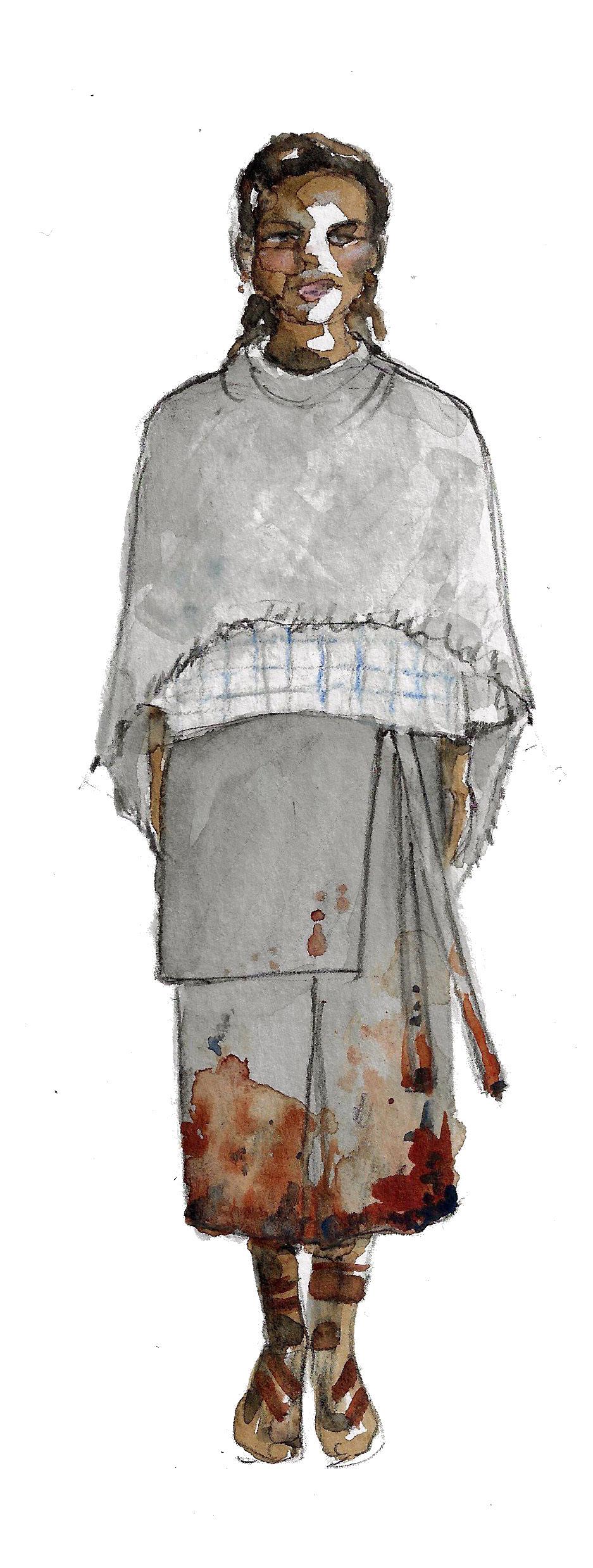

There is so much in this play. There is a murder mystery, a love story between a leader and his people, a treatise on hubris, a debate of divine morality, a tug of war between Fate and Free Will, an invitation to Sunday tea with Nihilism, and so much more. The production you are about to see is our contribution to that conversation.
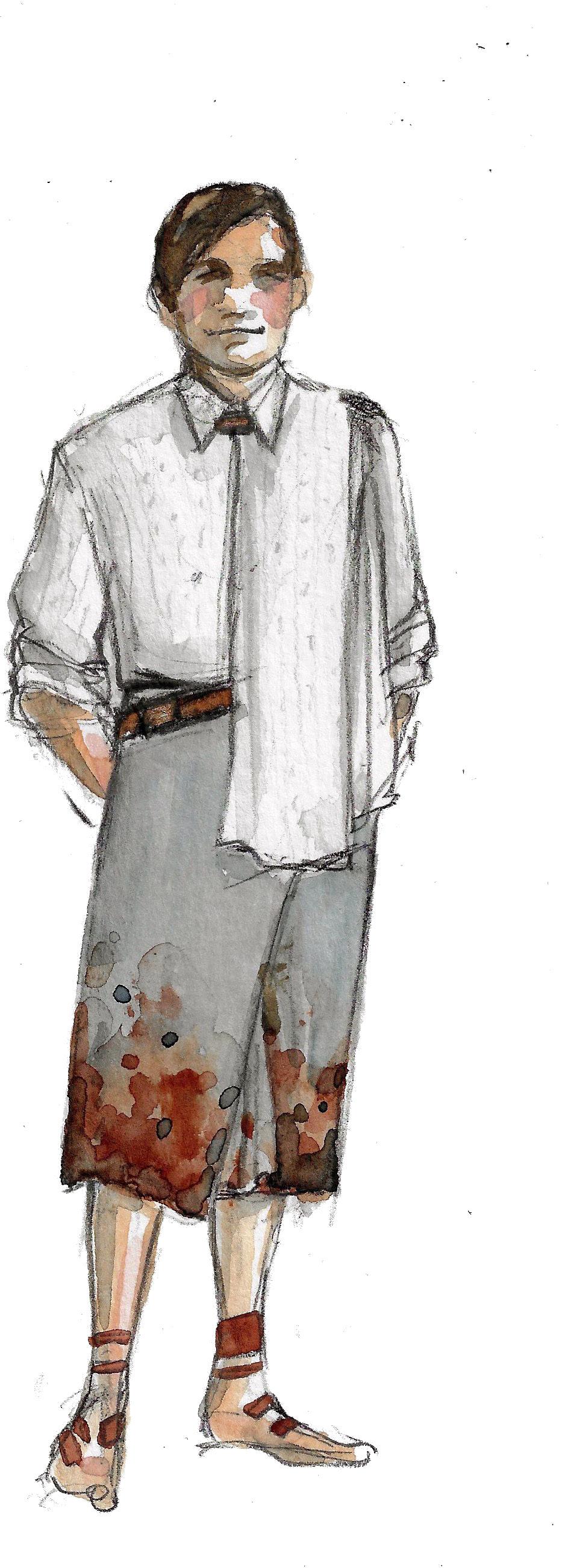
I would like to add, as an adapter, that there were and are so many voices that have shaped my own. Langston Hughes, Christopher Logue, Maya Angelou, Anne Carson, Seamus Heaney, Ellen McLaughlin, Oscar Wilde, Madeline Miller, Stephen Vincent Benet, my mother, my father, fellow vets (all storytellers in their own wonderful ways), and thousands of writers and poets on line and in schools, churches, poetry cafes, and prisons whose written and spoken words have filled my ears and soul for decades.
I am because they were.
The place of Oedipus in literature is something like that of the Mona Lisa in art. Everyone knows the story, the first detective story of Western literature; everyone who has read or seen it is drawn into its enigmas and moral dilemmas. It presents a kind of nightmare vision of a world suddenly turned upside down.… It is a story that, as Aristotle says in the Poetics, makes one shudder withhorrorandfeelpityjustonhearingit.InSophocles’s hands, however, this ancient tale becomes a profound meditation on the questions of guilt and responsibility, the order (or disorder) or our world, and the nature of man. The play stands with the Book of Job, Hamlet, and King Lear as one of Western literature’s most searching examinations of the problem of suffering.
“A nightmare vision of a world….” Aren’t we living that sufficiently in today’s “upside down” world? A fair question—but one that moves right into the heart of the belief we hold that art can lift and expand our daily lives through metaphor. While none of us aspires to live like Oedipus, his story gives us great insight into the breadth of human capacity for the unrelenting search for truth, and into the zealous desire of a good leader to protect their community from harm.
So why Oedipus now? A perfect storm of good reasons. First, I found a translation that opens the play to American audiences. For many years I have searched for a translation/adaptation that would meet us where we are (rather than hoping that we are all as encyclopedic about Greek divinity as the Ancient Greeks were). About a year ago I finally found David Daniel’s extremely sleek and actable version that makes the story spring to life in thrilling ways. Then we were able to secure David Alan Anderson to play the lead and James Still to direct, and to draw around them a remarkably accomplished group of actors and designers willing to walk undaunted in the labyrinth where this play lives in Western culture.
Even when one has great circumstances like these, the Greek plays require some crazy carpe diem to take
them on. They are the Mount Everest of our Western theatrical literature, the most primal, the oldest, the most elemental, the greatest challenge—and therefore the most daunting to take on. I happen to have a large dose of that this year, in my last season before retirement, so carpe diem it is!
Oedipus has tremendous resonance to our troubled time: its inciting incident is a plague that has taken over the city. Oedipus, the King, vows to the populace to lift the plague by whatever means necessary— without knowing that this vow dooms him. The play is a study in leadership, and since we live in a country so riven by opposing views of what constitutes good leadership, this is a particularly timely debate. While Sophocles would have laughed to think that Oedipus would ever become a role model—characters, after all, are metaphors, not real people—Oedipus has become an endlessly exciting psyche to dissect. His motives both as a man and a leader have inspired constantly evolving definitions of humanity by philosophers, artists, and eventually, of course, psychoanalysts. (Freud and Nietzsche are the ones who really made Oedipus a household name). Plays call to us as artists at various moments in time, and Oedipus calls both artists and audiences to gain huge perspective about humanity’s soaring hopes and harrowing failings. The play shows us how humanity can strive for truth—and how it can fall when that truth is revealed.
Philosopher Joseph Campbell writes in his book The Power of Myth (based on the PBS series) something that rings hugely true about Oedipus:
Mythology is not a lie, mythology is poetry. It is metaphorical.Ithasbeenwellsaidthatmythologyisthe penultimate truth—penultimate because the ultimate cannot be put into words. It is beyond words. Beyond images,beyondtheboundingrimoftheBuddhistWheel of Becoming. Mythology pitches the mind beyond that rim,towhatcanbeknownbutnottold.
Sophocles’s story was so familiar to its original audience that they knew its ending and its every twist

and turn even before the play began. Yet they flocked to see this story staged over and over, in many plays by many different writers. What were they seeking? The same things we seek in our quest for art that resonates and expands our hearts and minds. We all want answers, or at least shreds of answers, to the ultimate question: What is it to be human? What can we glean from standing with Oedipus as he wrestles with his own humanity, with his own quest for truth? We at the IRT hope you find in this production some new shreds of answers as you consider your own humanity. How can we live through our own triumphs and tragedies, and emerge enlightened, and more at peace with our striving souls?
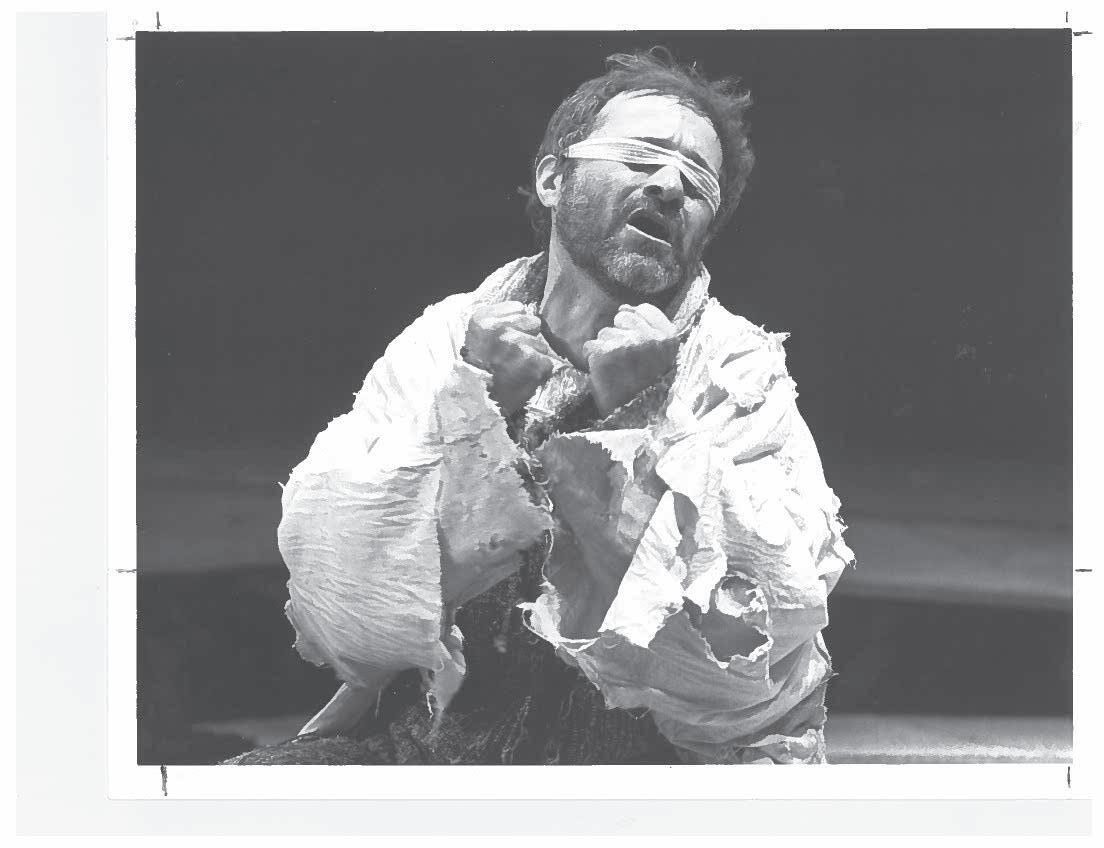


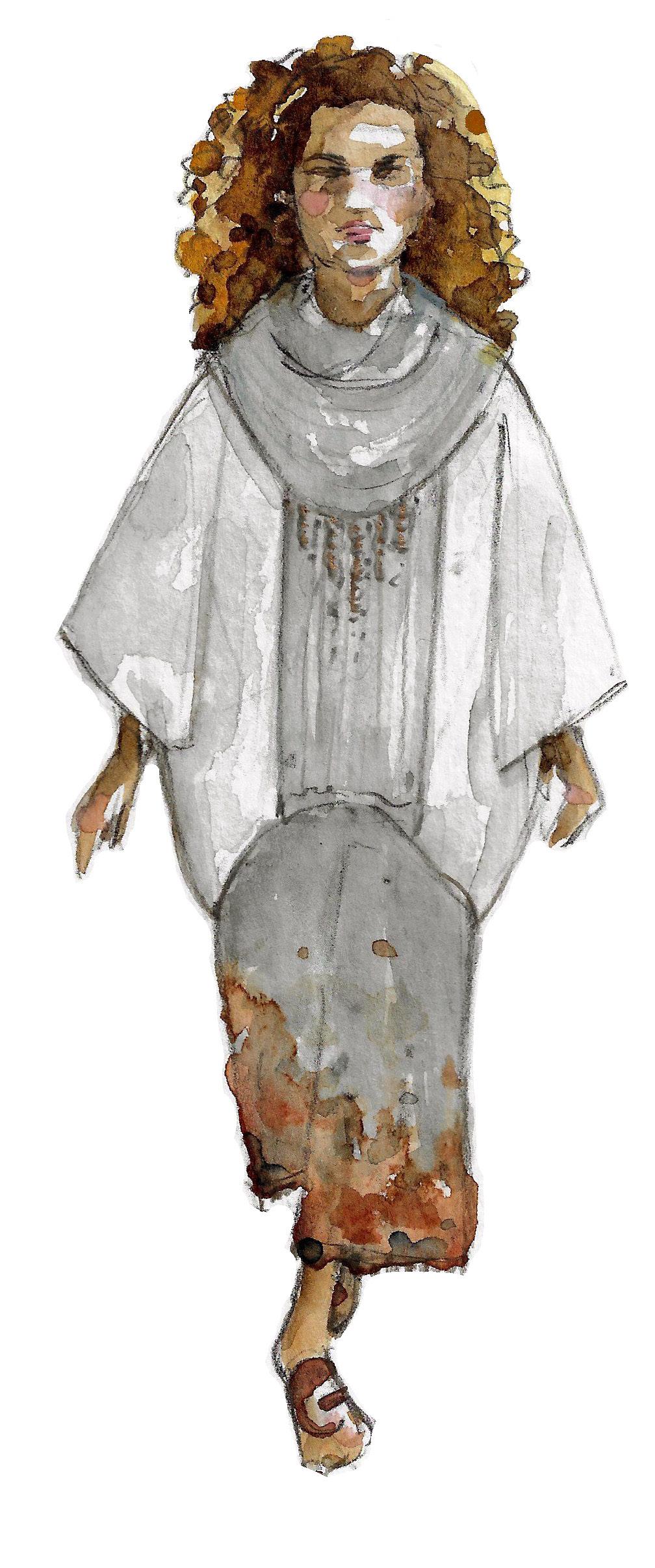
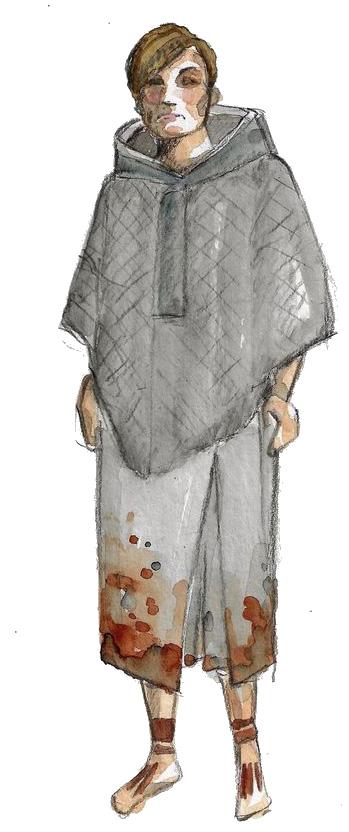
Something to know about me: I like old things. I like old souls, old cars, old music, old photographs, old scars…. Ironically, I don’t like a lot of old plays, but it turns out I may love ancient ones. Oedipus is ancient. Sophocles may have been the Tony Kushner or Arthur Miller of the 5th century BCE, but the plays he wrote vibrate and shimmer with a different kind of currency than contemporary plays.

Working on our production, I’ve wrestled with some of the same things I suspect you might wrestle with as well. The nagging anxiety that pulses under the surface of the play is laid bare by the tension between fate and free will. At first that might seem like a dusty, irrelevant thesis crammed somewhere between a required college lecture and our ancestors’ lack of sophistication. But in my own wrestling with the play, I’ve discovered that the ways that fate and free will are emotionally at war with one another in Oedipus aren’t that far from our modern-day struggles with conflicting extremes.
On the one hand, it seems very American to believe in free will and self-determination: that idea that if we work hard enough, or do the “right” things at the right time, that we will be amply rewarded with generous agency. But that quintessential belief that we are the architects of our future is often pitted against the old adage related to fate: “everything happens for a reason”—which is a spin on “it’s out of my hands” or “what will be will be.…”
Some have said that Greek tragedies are about people who learn too late. For me, Oedipus is about a knot that ties various extremes together, and the terror and suffering that result from not knowing when to leave that knot alone. It’s tempting to wonder what was coursing through Sophocles’s mind when Oedipus came provocatively pouring out. Did he have any idea that his play would survive more than 2,500 years? There’s something profound (and disturbing) about something imagined so long ago that is still needed and still worthy of witnesses like you and me.
One thing I can offer as context, that might help you open your own hearts and lens to this ancient play: there is a
difference between identifying with a character and investing in that character. As contemporary audiences, we’re conditioned by mystery stories that are logically solved by applying cause-and-effect: TV mysteries that have been reduced to familiar formulas, legal procedurals that have just enough psychological shadows that we’re able to put ourselves in the shoes of outsiders and monsters. We have names and diagnoses that help us justify the worst of humanity.
Sophocles pitched something similar but with a very different form—something new to those first audiences in Ancient Greece, who must have cheered and recoiled as characters on an outdoor stage wrestled with their gods and monsters. It’s too easy to simply dismiss Oedipus (the character) as the last one to figure out what may seem perfectly obvious to all of us. It’s too easy for us to feel superior.
Instead, I urge you to watch/listen/feel the story of Oedipus, as it unfolds with unrelenting directness. Imagine you’re on the inside of someone’s head, where reason is on a collision course with hubris, where logic utterly fails to cooperate when we need it most. It seems deeply human to deny the obvious until it’s no longer deniable—until you’re left with the despair that comes with the tragic knowing that the monster you’re pursuing is actually yourself.
The play asks us to invest in Oedipus and to watch his life unspool right in front of us in uninterrupted time. Oedipus is unable to undo the curse placed on him as an infant. He’s unable to stop the story—and neither are we. Even if we’ve figured out the ending long before he does, the point is that we witness how power and heroism can quickly crumble. Put another way: it might take a long time to rise to power and sustain that power, but it takes surprisingly little time—time we never get back—for that same power to turn tragic.
Highly educated, he was elected to several political offices during his life in Athens, including treasurer, executive official, and commissioner. Several anecdotes from his contemporaries indicate that he was a homosexual. Sophocles wrote more than 120 plays for the annual Athens dramatic festival. He competed in 30 festivals, winning
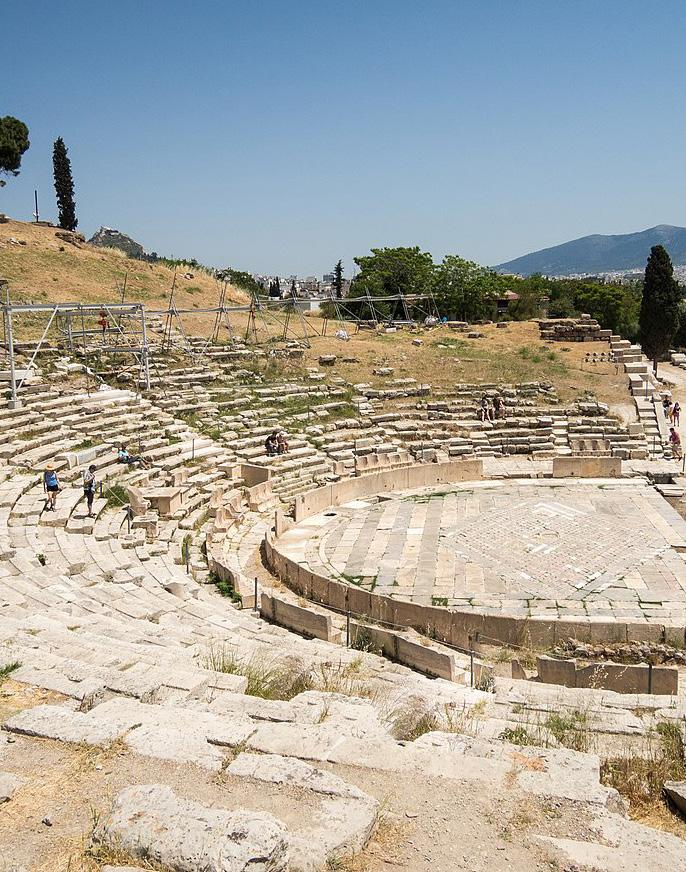
24, and placing second in the other six. Only seven of his plays have survived, of which the most famous are Oedipus Rex—often considered the greatest example of tragedy— and Antigone. Sophocles created characters of greater depth than previous playwrights. He increased the number of actors in a play from two to three—each playing multiple roles—thus reducing the importance of the chorus and increasing opportunities for conflict and plot development.

The golden age of Greek theatre occurred between 500 and 400 BCE, when Athens was considered the intellectual and cultural center of the world. This is the same century as when the Parthenon was built.
Athens was a democracy, and its citizens viewed justice in terms of chaos and balance. This democratic structure was essential to the development of theatre: drama is the process of chaos restored to balance. The subject of the ancient Greek plays is the role of the individual in society. The emphasis is on character: seeking to know oneself through action. Freedom is the ability to think clearly, to see one’s place in the natural order. We are defined by what we have in common. These ideas form the core of tragedy and the tragic hero.
In ancient Greece, there were very close ties between theatre and religion. This relationship can be seen in the location of Greece’s most important theatre on the side of the Acropolis, in the very shadow of the most sacred site in Athens. Hymn-singing worshippers of Dionysus, the Greek god of wine and fertility, began to organize choral competitions. According to legend, Thespis was the first person to step out from the chorus and sing solo, thus becoming the first actor. It is from his name that we get the term thespian.
Greek theatre was presented in four week-long sociopolitical-religious festivals held every year. Plays were performed in competition, with a panel of judges from the common people. The winning poet was honored for his victory and treated as a civic hero. The Greek poetplaywright wore many hats: writer, composer, producer, director, choreographer, and sometimes even actor.
The Greek chorus, descended from the Dionysian choral competitions, was a group of a dozen performers who portrayed the community in the play: groups of citizens, civic leaders, jurors in a trial. They posed questions and addressed prayers to the gods, dancing and speaking rhythmically. The individual characters of the play were all performed by just three actors, changing costumes and masks to create each new character.
Every city in Greece had a stone amphitheatre built into a hollow space on the side of a hill. At the center of the

amphitheatre, surrounded by rings of stone benches on three sides, was a large flat circular space where the chorus performed. This dancing place was known as the orchestra. On the open side of this space was a structure called the skene, where the actors could change costumes and masks. The skene was also used within the action of the play: it might serve as an entrance to a house or a temple, or the roof might be used for the entrance of a god. The space where the audience sat was called the theatron, which meant “the seeing place.” This is the origin of our word theatre.
Although the skene represents the beginnings of scenery, scholars debate whether or not the Greeks attempted to create illusions of different locations. Battle scenes and deaths always occurred offstage; they were described by the characters and largely left to the audience’s imagination. The vista of town and countryside beyond the skene was important, integrating the individual with the community and the community with nature, illustrating the natural order of things.
Although more than a thousand plays were written during the Greek golden age, only 44 plays by four or five playwrights have survived. The most famous of these is Oedipus Rex (Oedipus the King) by Sophocles, who created the tragic hero as we know him, and who developed the concept of the tragic flaw.
Oedipusis a prime example of irony: the disjunction between what seems to be true and what isn’t true. Even though we meet Oedipus as a powerful king, his tragic fate is sealed long before the play begins. In many ways, Oedipus is structured like a mystery play—a whodunit. Throughout the play, Oedipus ignores the clues that point to himself and continues his pursuit of the truth.
The Ancient Greeks used theatre as a tool to teach moral lessons. Most plays—ancient and modern—tend to accept society as the norm and highlight the individual who falls outside that norm. Comedy teaches through poking fun at those who don’t follow social rules. Tragedy instructs by dramatizing how the hero handles crises. Oedipus warns us that we cannot escape our destiny. Today, as we debate issues of nature vs. nurture or genetics vs. environment, the play’s discussion of fate vs. free will continues to resonate.
For the 2002-2003 season opener, the Theatre announced it would stage James Still’s He Held Me Grand, the product of the playwright-in-residence’s Millennium Project. “For all of us here, it’s the long-awaited event,” Janet Allen told a reporter. Still had been working since 1998 on the play, which was based on hundreds of oral histories he collected in both Indiana and Pennsylvania, as it became a collaboration with Philadelphia-based People’s Light and Theatre Company. Still said it was “by far the most ambitious play I’ve ever written.”




Managing director Brian Payne resigned from the IRT in late 2000. When search committee chair Michael Maine had announced Payne’s hiring in 1993, he said, “The thing that impressed everyone the most was his genuinely boundless energy and commitment to making this the theatre we want it to be. And he expresses it in a way that we all found utterly charming.” Payne enjoyed a complementary—and productive—relationship with artistic director Janet Allen. “Janet and I developed a true partnership and were completely in sync,” he observed. “I wanted some artistic influence, she was clearly attuned to the budget, and we shared a commitment to community building—it all made for an ideal team.” Upon leaving the IRT, Payne would remain in the city to lead the Central Indiana Community Foundation.
Frequent IRT costume designer Tracy Dorman: “My first show at IRT was a production of August Wilson’s Jitney in 2003, directed by Timothy Douglas, and I will never forget how the shop built the entire 1970s show, mostly menswear. It was beautiful and meaningful because we created a world onstage that felt exactly right for that show, and it was as beautifully produced as any of the nineteenth century period shows that I’ve done at IRT. As a freelancer, I feel the greatest gift is being able to establish an artistic home where you feel like your vision can be fulfilled. IRT has always provided that for me, and I’m thankful for it.”



 BY DONNA L. REYNOLDS
BY DONNA L. REYNOLDS
In 2008 a major economic downturn, soon to be labeled the Great Recession, presented new challenges. “It didn’t feel like a crisis,” Steven Stolen recalled. “We found ways to do things rather than reasons not to do things.” The Theatre created a budget-conscious series, Going Solo. For four seasons, the oneactor plays showcased the works of local artists while helping to keep costs in check. The Theatre experimented with presenting them in rolling repertory and invited audience members to attend all three, even in a single day.
In 2006 IRT’s board hired Steven Stolen, the first managing director in the Theatre’s history to come from the Indianapolis community. An experienced development and arts management professional, as well as a talented musician, Stolen quickly set some priorities. He expanded the development department, deepened donor engagement, refocused efforts to secure corporate sponsorships, and negotiated a more favorable lease agreement with the city. With funding from Lilly Endowment and oversight by IRT’s general manager, Jane Robison, he spearheaded a project to renovate the street-level ticket office to “reveal this great place” and make the Theatre more accessible. Every initiative was designed to ensure financial stability while remaining true to artistic integrity.
Joel Markus was a stage manager at the IRT from 1997 to 2002, then left to take on comparable roles at other regional theatres. In 2006, Janet Allen called him with a new opportunity, this time as production manager, a post he held until 2011. For Markus, it was like a homecoming. He and his wife, Lisa, had met during his first tenure, when she was a member of the audience, and they later married on the IRT stage. All his IRT years afforded him the chance to learn, he said. One of the most enduring lessons, especially applicable to the production manager position, was IRT general manager Jane Robison’s declaration: “Every dollar is a real dollar.” In short, don’t waste a single one.
Faegre Drinker is proud to support the actors and staff who bring the Indiana Repertory Theatre to life. We are thrilled to be celebrating their 50th season of theatre and wish them success in their upcoming programming.




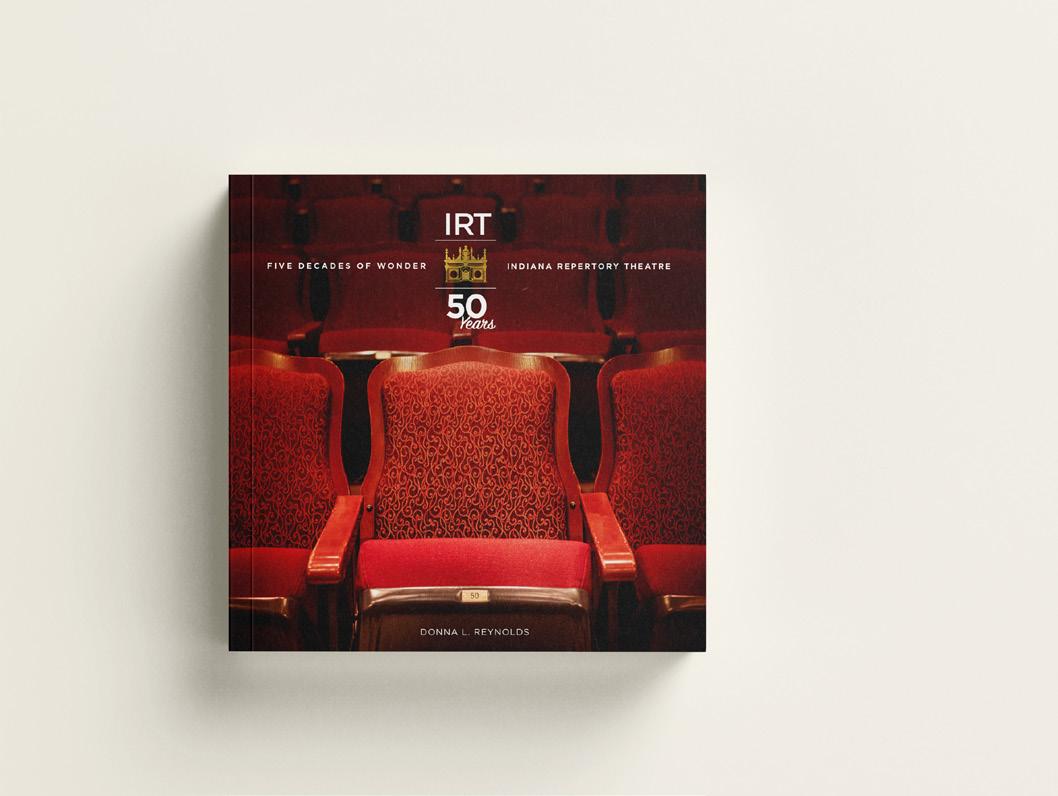





IRT audiences have seen David in TheReclamationofMadisonHemings,LookingOver the President’sShoulder,Fences,JuliusCaesar,TheWhippingMan,RadioGolf,TheMountaintop,A ChristmasCarol, and many others. Regional: the Shaw Festival; Lyric Opera of Chicago, Writers Theatre; Court Theatre; the Guthrie Theater; CenterStage; Denver Theatre Center; Actors Theatre of Louisville; Asolo Repertory; the Idaho, Pennsylvania, and Lake Tahoe Shakespeare festivals; Penumbra Theatre, where he is a company member; and many more. TV: TheChi,Shameless, ChicagoPD. He is a recipient of The Lunt-Fontanne Fellowship at Ten Chimneys, where he worked with Alan Alda. He received a Creative Renewal Fellowship from the Arts Council of Indianapolis, and was honored by the Circle City Links and the Center for Leadership Development.

Ryan’s IRT credits include A Christmas Carol, Cyrano, Tuesdays with Morrie, The Diary of Anne Frank, Noises Off, Romeo and Juliet, The Three Musketeers, To Kill a Mockingbird, The Crucible, A Midsummer Night’s Dream, God of Carnage, Rabbit Hole, Iron Kisses, Death of a Salesman, and many more. Ryan is the executive artistic director of the Indianapolis Shakespeare Company, where he has directed Hamlet and As You Like It and acted in eight shows. At the Phoenix Theatre he performed in How to Use a Knife. Regional credits include the Shakespeare Theatre Company in DC, the Studio Theatre, Shakespeare Santa Cruz, the Goodman Theatre, Berkeley Rep, the Lookingglass, and Great Lakes. Ryan graduated from Ohio University and Juilliard. “Love to Marita, Will, and Clara.”
Olivia is thrilled to make her IRT debut with Oedipus. She has worked regionally with the Louisville Orchestra, Steppenwolf Theatre, Portland Center Stage, Atlanta Shakespeare Company, Milwaukee Repertory Theatre, Milwaukee Chamber Theatre, Madison Repertory Theatre, Theatre Lila, Forward Theatre, Horizon Theatre, the Robey Theatre, and the Barter Theatre, to name a few. Film/TV: Honk for Jesus, Dopesick, Chicago Med, Empire, and Wolfpack (recurring) among others. Olivia was part of the inaugural cohort of the 2020 Arts and Social Justice Fellowship at Emory University and a Spring 2021 Fellow with the Hambidge Center.


IRT debut. Jed is an actor, musician, and composer based in New York. Recent credits include Uri Savir in TimeLine/Broadway in Chicago’s Oslo, Kassim in the First National Tour of Disney’s Aladdin, and drums for the new Off-Broadway musical Trevor, now on Disney+. Other credits include Chicago Shakespeare, Arena Stage, Marriott Theatre, Asolo Rep, Drury Lane Oakbrook, Writers Theatre, and Chicago Children’s Theatre. Jed is the co-creator of the radio-play musical podcast Yellowfin Grouper P.I.—season 1 out now. Proud Northwestern University alum and member of both Actors’ Equity and the American Federation of Musicians. “Thanks to Lindsay Jones, his team at the Mine, my fiancée Tiffany, friends, and family.” @jed_underscore

Mary Beth has appeared at the IRT in Miranda, Dr. Jekyll and Mr. Hyde, The Heavens Are Hung in Black, and Arcadia Her Chicago credits include Steppenwolf, Court, and many others. Her recent performance in Rebecca Gilman’s Swing State at the Goodman Theatre was named one of the Top Ten Performances in Chicago Theatre 2022 by the Chicago Tribune In New York, she has appeared at Playwrights’ Horizons, Manhattan Theatre Club, the Roundabout, and Westside Arts. She has numerous TV and film credits. Mary Beth has received two Joseph Jefferson Awards, the L.A. Drama Critics Circle Award, and the Sarah Siddons Award, as well as Lucille Lortel, Drama Desk, and Bay Area Critics’ nominations. She was an inaugural LuntFontanne Fellow and a Beinecke Fellow at Yale University.
Jan has previously been seen on the IRT stage in TheHouseThatJackBuilt,YouCan’tTake It With You,FindingHome,TheMousetrap,ToKillaMockingbird,AChristmasCarol,TheGentlemanfrom Indiana,InherittheWind,HeHeldMeGrand,SisterCarrie,DinnerwithFriends, and Amber Waves (2000). She has been seen at the Phoenix Theatre in the one-woman show ApplesinWinter, as well as in Alabaster,Winston’sBigDay,ThePill, and PurePrine, and in MaryJane for Summit Performance. Other regional credits include the Goodman, Steppenwolf, and Remy Bumpo in Chicago. Jan is the author of the book MyBeautifulLeukemia.


Sola is excited to make her IRT debut. Regional credits include 1919 at Steppenwolf, The Mountaintop at American Players Theatre, Eclipsed at Milwaukee Repertory Theatre, Stew at Milwaukee Chamber Theatre, and Hearts like Fists and Harry and the Thief at Know Theatre Cincinnati. Television: Chicago Med. Education: M.F.A., the Theatre School at DePaul University.


Trieu appeared in The Chinese Lady at the IRT and with Artists at Play at the Greenway Court Theatre. Recent work: Alan Strang in Equus (LADCC Nomination) with George Takei at East West Players; the title role in Oedipus the King (Portland); The Legacy Codes (Dean Goodman Award) with TheatreWorks. Other stage favorites: Rashomon, As You Like It, The Merchant of Venice, Henry IV Part 1, Richard III Film: Tropic Thunder, Trade of Innocents, Desolate, How High, Hancock. TV: Monsterland, Altered Carbon, The Newsroom, Intruders, Men at Work, Quickdraw. Trieu’s solo play Uncle Ho to Uncle Sam was co-written with Robert Egan, developed at Ojai Playwrights Conference, and premiered at Seattle ACT, with runs at the Kirk Douglas Theatre, Shakespeare Orange County, and PlayMakers Rep.

Lisa was the Producing Artistic Director of the all-female, multi-cultural Los Angeles Women’s Shakespeare Company from 1993 to 2016. She worked with over a thousand women and girls, and became a leader in the movement for gender parity and diversity in the arts. She directed and played leading roles in many iconic all-female productions (Hamlet, Richard III, Angelo, Leontes, Romeo, Shylock, Iago). Her hit solo, Shakespeare and the Alchemy of Gender, directed by Laurie Woolery, has toured internationally. Other credits include PlayMakers Rep, Oregon Shakespeare Festival, Utah Shakespeare Festival, TheaterWorks, Great River Shakespeare Festival, Orlando Shakespeare Theater, Berkeley Repertory Company, Shakespeare & Co, Company of Women, California Shakespeare Festival, Colorado Shakespeare, Sedona Shakespeare, Shakespeare & Company, and Prague Shakespeare Company. Lisa has lectured at more than thirty universities.

David is a Core Company member and Education Director at American Players Theatre, where he has been bouncing on their boards (often literally) in plays for more than twenty years. He has had the honor of playing with audiences in wonderful theatre companies around the country. As a writer, he has written or adapted TheOdyssey,Steinbeck,ATrojanWoman,Agamemnonand Clytemnestra, and MeandDebry, as well as the one-act comedy collection The Shuffle of Life. He lives in Spring Green, Wisconsin, with his wife Paula and their sons Declan, Nico, and Isaac. David is a proud veteran of the US Army. “Share the arts with a vet!”

This is James’s 25th season as the IRT’s playwright-in-residence; the company most recently produced his play The House That Jack Built. James has directed many productions at the IRT, including a Christmas Carol, Twelve Angry Men, A Doll’s House Part 2, The Originalist, Dial “M” for Murder, The Mystery of Irma Vep, Red, Other Desert Cities, God of Carnage, Mary’s Wedding, Becky’s New Car, Rabbit Hole, Doubt, Bad Dates, Old Wicked Songs, Plaza Suite, The Immigrant, and Dinner with Friends, as well as his own I Love to Eat, Amber Waves (2000), and Looking Over the President’s Shoulder (2001). (complete bio on page 10)


Carey’s theatre credits include the Seattle Repertory Theatre, Berkeley Repertory Theatre, Portland Center Stage, Arizona Theatre Company, Center Stage Baltimore, Syracuse Stage, Alliance Theatre, Seattle Children’s Theatre, Village Theatre, Mixed Blood, Prince Music Theater, Hey City Theater, and Spain’s Nearco Producciones. He has been Resident Designer for Portland Opera, Opera Memphis, and Wildwood Park. Opera credits include Seattle Opera, Spoleto Festival USA, New York’s Valhalla Wagnerfest, Pittsburgh Opera, and the Beijing and Macao music festivals. Carey was exhibition designer for the Portland Chinatown Museum’s permanent exhibit, Beyond the Gate, where a retrospective of his design work appeared last year. He is a graduate of Yale College and attended the Yale School of Drama.


Sara’s Off-Broadway credits include Golden Shield (Manhattan Theatre Club), Somebody’s Daughter (Second Stage Uptown), and Fruiting Bodies (Ma-Yi Theater Company). Regional: Guthrie Theater, Oregon Shakespeare Festival, South Coast Repertory, Denver Center for the Performing Arts, Geffen Playhouse, Milwaukee Repertory, Actors Theatre of Louisville, Folger Theatre, Pasadena Playhouse, Seattle Rep, Mixed Blood Theatre, TheatreWorks Silicon Valley, Baltimore Center Stage, Boston Court, Perseverance Theatre, East West Players, Cornerstone Theater Company, A Noise Within, Yale Repertory Theatre, and others. Set design faculty at UCLA School of Theater, Film, and Television. Recipient of the Donald and Zorca Oenslager Fellowship in Design. M.F.A., Yale School of Drama; A.B., Princeton University. sararyungclement.com


At the IRT, Michelle has designed Fahrenheit 451, Twelve Angry Men, A Doll’s House Part 2, Looking Over the President’s Shoulder, Dial “M” for Murder, The Mousetrap, Amber Waves (2000), and An Almost Holy Picture. Broadway: slide artist for Thoroughly Modern Millie; associate/assistant lighting design for The Boy from Oz, Movin’ Out, Thoroughly Modern Millie, and King Hedley II Off Broadway: Fifty Words for MCC Theatre. Regional; Guthrie, Steppenwolf, Goodman, Alliance, Seattle Children’s Theatre, Minneapolis Children’s Theatre, Cincinnati Playhouse in the Park, Arizona Theatre Company, Penumbra, Lookingglass, others. Opera: Austin Opera; associate for Julie Taymor’s Grendel. Michelle was awarded the NEA/TCG Career Development Grant for Design. She leads the lighting program in the Department of Theatre and Dance at the University of Texas at Austin.
IRT: Dial “M” for Murder, The Mystery of Irma Vep, Good People, Agnes of God. Broadway: Slave Play (Tony nominations for Best Score and Best Sound Design of a Play), The Nap, Bronx Bombers, and A Time to Kill. Off-Broadway: Privacy (Public), Bootycandy (Playwrights Horizons), Feeding the Dragon (Primary Stages), and many others. Regional: Guthrie, Center Stage, American Conservatory Theater, Hartford Stage, Alliance Theatre, Goodman, Arena, Old Globe, Chicago Shakespeare, Steppenwolf, many others. International: Stratford Festival (Canada), Royal Shakespeare Company (England), many others. Audio dramas: Marvel, Audible, Next Chapter Podcasts, and the award-winning “The Imagine Neighborhood.” Film/ TV scoring: HBO Films’ A Note of Triumph (2006 Academy Award for Best Documentary, Short Subject), over 30 other films. He is co-chair of Theatrical Sound Designers and Composers Association (TSDCA) lindsayjones.com

IRT: The Curious Incident of the Dog in the Night-Time; A Christmas Carol; Bridge & Tunnel; Romeo and Juliet; The Three Musketeers; April 4, 1968; This Wonderful Life. Mariel was a dancer with Dance Kaleidoscope for 15 years; she teaches ballet and modern dance locally. She has set dance works for Dance Kaleidoscope, Indianapolis Ballet, Phoenix Rising Dance Company, and Relevations. Theater credits: Pittsburgh Public Theater, Phoenix Theatre, Summer Stock Stage, Marian University, Zach Rosing Productions, Park Tudor High School. Mariel received the Individual Artist Grant from the Indiana Arts Commission in 2007. In 2010 she was awarded a Creative Renewal Arts Fellowship from the Arts Council of Indianapolis. She was a 2021 On-Ramp cohort with the Indiana Arts Commission. B.A. in dance from Point Park University.

This is Richard’s 33rd season with the IRT, and his 25th as resident dramaturg. He has also been a dramaturg for the New Harmony Project, Write Now, and the Hotchner Playwriting Festival. He has directed IRT productions of A Christmas Carol (four times), Bridge&Tunnel,TheNight Watcher,Neat,PrettyFire,TheCay,TheGiver,ThePowerofOne, and TwelfthNight. Other directing credits include Actors Theatre of Indiana (where he recently directed Violet), the Phoenix Theatre, Indianapolis Chamber Orchestra, Edyvean Repertory Theatre, Indianapolis Civic Theatre, Butler University, University of Indianapolis, Marion University, and Anderson University. Richard studied music at DePauw University and theatre at Indiana University and has been awarded a Creative Renewal Arts Fellowship from the Indy Arts Council.
This is Nathan’s 27th season at the IRT. He has also worked with Center Stage in Baltimore, Utah Shakespeare Festival, and Brown County Playhouse; and he is a company member with the Indianapolis Shakespeare Company.


Based in Chicago, Claire Simon CSA has worked with the IRT for the past 23 years on casting more than 40 productions, including Murder on the Orient Express, Twelve Angry Men, You Can’t Take It With You, Holmes and Watson, Noises Off, Appoggiatura, The Curious Incident of the Dog in the Night-Time, and many more. Other regional credits include Syracuse Stage, Asolo Theatre, Lyric Opera, Milwaukee Rep, and the Tony Award–winning Million Dollar Quartet. TV credits include Empire, Easy, Sense8, Chicago Fire, Chicago PD, Crisis, Betrayal, Detroit 1-8-7, and Boss. Film credits include Divergent, Contagion, Unexpected, Man of Steel, and Save the Last Dance. Claire has won Artios Awards for casting the pilot of Empire and for Season 1 of Fox’s Prison Break.


Through its community outreach efforts, the Navient Community Fund supports organizations and programs that address the root causes which limit financial success for all Americans. The Navient Community Fund is proud to support the Indiana Repertory Theatre as the Education Partner for the 2022-2023 Season.


Navient is a leading provider of asset management and business processing solutions to education, healthcare, and government clients at the federal, state, and local levels. Millions of Americans rely on financial support to further their education and improve their lives. We work hard each day to help our customers navigate financial challenges and achieve their goals.
We at Navient have a deep appreciation for the arts and for the hard work, passion, and emotion that go into them, as well as the positive influences the arts have on individuals and their communities. Our employees in central Indiana are proud to support our community through amazing programs like those offered by IRT.
Enjoy the show.
Corteva Agriscience is on a mission to help nourish the world. KEEP GROWING.










Celebrating our 50th season of engaging, inspiring, and entertaining ALL of Indiana!
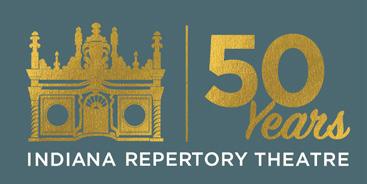
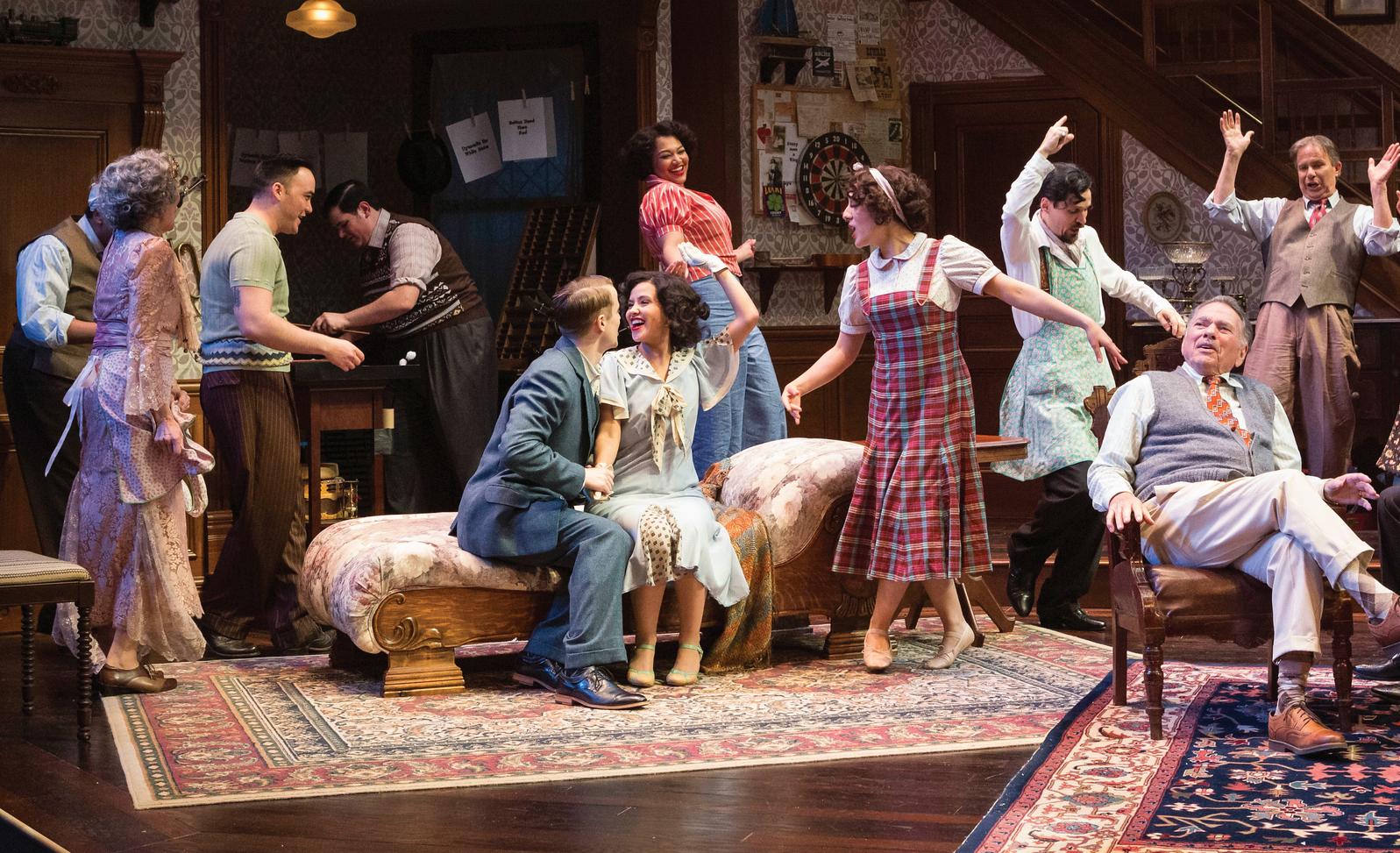
PLEASE CONSIDER BECOMING A REPERTORY SOCIETY MEMBER!
When you are part of the Repertory Society you are amongst our most generous supporters. Donors giving $1,500 or more each season will join this exclusive group and gain access to a wide variety of benefits that provide special access to our art and artists.
CONTINUING OUR MISSION WOULD NOT BE POSSIBLE WITHOUT YOU.
REPERTORY SOCIETY BENEFITS INCLUDE:
Invitation to Exclusive Special Events, Unlimited Access to Our Exclusive Donor Lounges, Discounts on Single Tickets Purchased, and MUCH MORE!





Make your license plate purchase count.
Purchasing an Arts Trust License Plate contributes to an established endowment and, along with funds from the Indiana General Assembly, supports arts projects across the state.
make us stronger –as individuals, families, communities, and as a state. www.arts.in.gov


Ticket revenue covers just half of what it costs to produce world-class professional theatre at the Indiana Repertory Theatre. The IRT gratefully acknowledges the remarkable support we receive from our generous and committed donors whose contributions ensure that the show does go on!
Bob & Toni Bader
David & Jackie Barrett
Scott & Lorraine Davison
The Michael Dinius & Jeannie
Regan-Dinius Family Fund, a fund of the Indianapolis Foundation
Nancy & Berkley Duck
Dan & Ginny Emerson
David & Ann Frick
Tom & Jenny Froehle
Susan & Charlie Golden
Mike & Judy Harrington
Sarah & John Lechleiter
Bill & Susie Macias
David & Leslie Morgan
Jackie Nytes & Patrick O’Brien
Sue & Bill Ringo
Mary Frances Rubly & Jerry Hummer
Wayne & Susan Schmidt
Cheryl Gruber Waldman
David P. Whitman & Donna L. Reynolds
Craig & Betsy Dykstra
Drs. Cherryl & Shelly Friedman
Dr. and Mrs. Gregory Gaich
Derek & Elizabeth Hammond
Ann Hinson
Bill & Nancy Hunt
Phil & Colleen Kenney
Steve & Bev Koepper
John & Laura Ludwig
David & Robin Miner
Mr. & Mrs. Kimball Morris
Carl Nelson & Loui Lord Nelson
Mr. Stephen Owen Sr. & Dr. Cheryl Torok Owen
Jill Panetta & Leo Bianchi
Joan Perelman
Dr. Christine & Mike Phillips
Noel & Mary Phillips*
Drs. Eric Schultze & Marcia Kolvitz
Marguerite K. Shepard, M.D.
The Michael L. Smith and Susan L. Smith Family Fund, a fund of Hamilton County Community Foundation
Catherine M. Turner*
John & Kathy Vahle
Lainie Veenstra
James & Linda Wesley
Dr. Christian Wolf & Elaine Holden Charitable Fund
Kathy & Gene Gentili
Charles Goad & James Kincannon
Donald & Teri Hecht
Tom & Nora Hiatt
Brenda Horn
Pegg & Mike Kennedy
David Kleiman & Susan Jacobs
John & Susan Kline
Kevin Krulewitch & Rosanne Ammirati*
Jill & Peter Lacy
Kathryn Maeglin
Bob & Dale Nagy
Rob & Sara Norris
N. Clay & Amy McConkey Robbins
Tim & Karen Seiler
Jerry & Rosie Semler
Mark & Gerri Shaffer
Joe & Jill Tanner
Gene & Mary Tempel
Jeff & Benita Thomasson
Lynne & Alex Timmermans
Carol Weiss
Bob & Dana Wilson
Don Anderson
Kathryn Beiser & Mick Domagala
Susie & Joel Blum
Dave & Nancy Breitweiser
Gary Denney & Louise Bakker
Rollie & Cheri Dick
A.J. Allen
Dan Bradburn & Jane Robison
Dick & Brenda Freije
Janet Allen & Joel Grynheim
Anonymous (2)
Trudy W. Banta
Sarah C. Barney
Daniel & Rita Blay
Thomas & Victoria Broadie
Amy Burke
David & Judith Chadwick
Steve & Kim Chatham
Alan & Linda Cohen Family Foundation

Don & Dolly Craft
Daniel & Catherine Cunningham
Frank & Norah Deane
Dr. Gregory Dedinsky & Dr. Cherri Hobgood
Fred W. Dennerline
Laurie Dippold*
Paul & Glenda Drew
Craig & Marsha Dunkin
Troy D. Farmer
Drs. Richard & Rebecca Feldman
Joan M. FitzGibbon
Mary L. Forster, M.D.
Brian & Lorene Furrer
Future Keys Foundation
Ashley & Andrea Garry
Garth & Christine Gathers
Robert & Christy Gauss
Mr. Jim Gawne*
Dorothea & Philip Genetos
Robert Giannini
Ron & Kathy Gifford
Bruce Glor
Marta Gross & Richard M. Barnes
Walter & Janet Gross
Bill & Phyllis Groth
Chad & Kelli Grothen
Ricardo & Beatriz Guimarães
Mary & Gary Gustafson
Emily F. (Cramer) Hancock*
Jeffrey Harrison
Michael N. Heaton
The Hedges-Dillman Family
Holt Hedrick
Kurt & Charlene Heinzman
William & Patricia Hirsch
Richard & Elizabeth Holmes
Randy & Becky Horton
Drs. Meredith & Kathleen Hull
Rebecca Hutton
The Indianapolis Fellows Fund, a fund of The Indianapolis Foundation
Colette Irwin-Knott & Gary Knott
Lauren James
Patrick & Barbara James
Tom & Kathy Jenkins
Daniel T. Jensen & Steven Follis
Mrs. Janet Johnson
Denny & Judi Jones
Elisha & Reed Kemp
Max Kime
Joy Kleinmaier
Dr. Michael & Molly Kraus
Kurt & Judy Kroenke
Dr. & Mrs. Alan Ladd
Ed & Ann Ledford
Dan & Martha Lehman
Joe & Deborah Loughrey
Barbara MacDougall
Marlene & Bob Marchesani
Kellie McCarthy
Sharon R. Merriman
Andrew & Amy Michie
Douglas and Detra Mills Giving Fund
Lawren Mills & Brad Rateike*
Dr. David H. Moore & Dr. Kris Beckwith
Michael D. Moriarty
Linda & Don Neel
Tammie L. Nelson & David McCaskill
The Blake Lee and Carolyn Lytle
Neubauer Charitable Fund, a fund of Hamilton County Community Foundation
Dr. & Mr. Nichols
Dr. Joseph M. Overhage & Dr. Mary R. Brunner
Larry & Louise Paxton
Kenneth A. & Joan C. Peterson
Dr. & Mrs. Lee Phipps
Gail & William Plater
The David and Arden Pletzer Endowment Fund, a fund of Hamilton County Community Foundation
Bob & Kathi Postlethwait
Phil & Joyce Probst
Scott & Susan Putney
Michael & Melissa Rawlings
Peter & Karen Reist
Ken & Debra Renkens
Karen & Dick Ristine
Chip & Jane Rutledge
Paula F. Santa
Jane W. Schlegel
Alice Schloss Donor Advised Fund, a fund of Jewish Federation of Greater Indianapolis
Tom & Barbara Schoellkopf
Darshan & Rebecca Shah
Jack & Karen Shaw
Lily Smith & Leonid Sirotkin*
Edward & Susann Stahl
Ed & Jane Stephenson
Robert & Barbara Stevens
Jim & Cheryl Strain
Jeff & Janet Stroebel
Kay Swank-Herzog & Robert Herzog
Suzanne Sweeney & Todd Wiencek
Jonathan T. Tempel
John & Deborah Thornburgh
Jennifer C. Turner
Jennifer & Gary Vigran
Amy Waggoner
Beverly Watkins
Dorothy Webb
Dr. Rosalind Webb
Emily A. West
Alan & Elizabeth Whaley
Cliff Williams
John & Margaret Wilson
Jim Winner
Frederick & Jacquelyn Winters
William Witchger, II & Kimberly Witchger
John & Linda Zimmermann
Phyllis & Ed Gabovitch
Ric & Jan Good
Julie Goodman
Thecla Gossett
David & Mary Allen
Bob & Pat Anker
Anonymous
John Champley & Julie Keck
Brady Clark
Robert Clifford
Daniel P. Corrigan
Sherry Faris
Drs. Eric Farmer & Tate Trujillo & Christopher Scott*
Dawn M. Fazli
Peter Furno & Pamela Steed
Priscilla Gerde
Richard & Sharon Gilmor
Elizabeth Hansen
Lisa Harris, M.D.
The Steven Herker Charitable Fund, a donor-advised fund
Anita & Henry Johnson
James & Sara Lootens
John & Carolyn Mutz
Susan & Jim Naus
Ann Marie Ogden & Brian Murphy
Roger & Anna Radue
Jean Richcreek
Sallie Rowland
Thomas & Teresa Sharp
Lee Shevitz
Michael Skehan
Cheryl & Bob Sparks
Mary Ann Thiel
Dr. James & Linda Trippi
Karen J. Weyrauch
Philip & Shandon Whistler
Nancy Woolf
Kwin & Jill Abram
Jay Allen & Cathleen Fogler-Allen
Katy & Tim Allen
The Todd A. Andritsch
Family Fund
Anonymous (3)
Mark K. Bear
Constance C. Beardsley*
Dan & Barb Bickel
Mr. & Mrs. Joseph B. Black III
Jesse L. & Carolynne Bobbitt
Barbara & Christopher Bodem*
Joseph & Louise Boling
Karry Book & John Hansberry
Mauvene Borton
Steve & Darlene Bricker
William Capello M.D.
Vince & Robyn Caponi
Allen B. Carter & Patricia Hester
Robert Cedoz
Jeffrey & Jeni Christoffersen
Jerry & Carol Collins
Shane and Andrea Crouch*
James & Carolyn Curry
Kathleen A. Custer
Karen Dace*
Bill & Shirley Daley
Fr. Clem Davis*
Paul & Carol DeCoursey*
Mary & Steve DeVoe
Tom Dorantes & Sunah C Kim Dorantes*
Patricia Edwards
Nikki Eller
Margie Ferguson*
Arthur Field IV
Jim & Julie Freeman
Roger & Susan Frick
John & Mary Ann Grogan
Greg Grossart
John & Jana Mason Gruner
Ron & Ellie Hackler
Diane Hall
Mr. & Mrs. David J. Hamernik
Don & Carolyn Hardman
Don & Elizabeth Harmon
Mark & Laurie Hartman
Andrea Hatch & Rich Dionne
Steve & Kathy Heath
Sandra Hester-Steele
Eleanor & Joseph Hingtgen
Katie, Tim & Jennifer Holihen
David Jackoway
Kyle & MaryBeth Jackson
Greg & Pat Jacoby
Patricia Johnson & Michael Wilson
Steven & Mary Koch*
Michelle Korin*
Kathy & David Lentz
Andra Liepa Charitable Fund, a fund of The Indianapolis Foundation
Carlos & Eleanor Lopez
Linda Lough*
Mark Magee*
Lyle & Deborah Mannweiler
Dr. & Mrs. Peter Marcus*
Gayle Mayne
William McNiece
Rev. Mary Ann Moman*
James & Valerie (Purcell) Monn
Jim & Shantel Morris
Jim & Judi Mowry
Terry & Lew Mumford
Sharon & Dan Murphy*
Dr. LeeAnne M. Nazer
John D. & Kathy Null
The Ostergaard Family
Merrell & Barbara Owen
Mr. & Mrs. Robert M. & Kelli DeMott Park
Deb & Greg Perkins
The Poisel Family
Greg Pugh & Jill Woerner
Douglas Paul Reichl
Richard & Ann Riegner
Benjamin & Anna Roberts
Rabbis Dennis & Sandy Sasso
Richard & Christine Scales
Jim & Sara Schacht
Rev. Robert & Dr. Rita Schilling
Dr. Jill Shedd*
Linda J. Shinn
Doug Sims
Kimberly Sorg-Graves
Luke Stark*
Gregg & Judy Summerville
Nela Swinehart*
Dr. Tim & Tina Tanselle
Steve & Barb Tegarden*
Garrett & Elaine Thiel
The Lori Thompson & Ben Downing Charitable Fund
Robert & Barbetta True*
Barbara S. Tully*
Bill & Janet Wakefield
Norma B. Wallman
Richard M. Warren & Tammey Kikta
Sherry Watkins
Judge Martha Wentworth
A. Donald & Jeanette Wiles
Angie & Andy Wilkinson
Prof. Gail F. Williamson
John & Judy Wilson
Robert & Deborah Wingerter
Reba Boyd Wooden*
Zionsville Physical Therapy*
*Denotes sustaining members
The Ovation Society is an exclusive program that recognizes donors that have made a legacy gift to the IRT. The IRT truly appreciates those individuals whose gift will ensure that the Theatre can continue to provide meaningful and inspirational experiences for future generations.
Gary Addison
Janet Allen & Joel Grynheim
Bob & Pat Anker
Bob & Toni Bader
Frank & Katrina Basile
Charlie & Cary Boswell
Ron & Julia Carpenter
John R. Carr (in memoriam)
John & Mary Challman
Sergej R. Cotton
Mr. & Mrs. Thomas E. Dapp
Nancy Davis & Robert Robinson
Rollie & Cheri Dick
Nancy & Berkley Duck
Dale & Karen Duncan
Jim & Julie Freeman
Meg Gammage-Tucker
David A. & Dee Garrett (in memoriam)
Michael Gradison (in memoriam)
Emily F. (Cramer) Hancock*
Michael N. Heaton
Bruce Hetrick & Cheri O’Neill
Tom & Nora Hiatt
Brenda Horn
Bill & Nancy Hunt
David Kleiman & Susan Jacobs
Frank & Jacqueline La Vista
Andra Liepa Charitable Fund, a fund of The Indianapolis Foundation

Barbara MacDougall
Donald & Ruth Ann MacPherson
Stuart L. Main (in memoriam)
Michael R. & Sue Maine
Megan McKinney
Sharon R. Merriman
David & Leslie Morgan
Michael D. Moriarty
Richard & Lila Morris
Mutter Marines--Jim & Carol
Deena J. Nystrom
Marcia O’Brien (in memoriam)
George & Olive Rhodes (in memoriam)
Jane W. Schlegel
Michael Skehan
Michael Suit (in memoriam)
Gene & Mary Tempel
Jeff & Benita Thomasson
Christopher J. Tolzmann
Alan & Elizabeth Whaley
John & Margaret Wilson
IN HONOR OF JANET ALLEN | Sarah C. Barney
IN HONOR OF JANET ALLEN’S RETIREMENT | Rabbis Dennis & Sandy Sasso
IN MEMORY OF JED KHALID | Rauf J. Khalid
IN MEMORY OF PATRICIA STASH | Janeann Pitz
IN HONOR OF GENE & MARY TEMPEL | Anna Fender
IN HONOR OF BILL VARANKA | Catherine M. Turner
IN MEMORY OF WILLIAM VARANKA | Cynthia Mahony
Barnes & Thornburg LLP
Corteva Agriscience
Faegre Drinker
Frost Brown Todd
KPMG
Navient Community Fund
OneAmerica Financial Partners
Oxford Financial Group, Ltd.
Pacers Sports & Entertainment
Printing Partners
The Ackerman Family Foundation
Elba L. & Gene Portteus Branigin Foundation, Inc.
The Jerry L. and Barbara J. Burris Foundation
Allen Whitehill Clowes
Charitable Foundation
Christel DeHaan Family Foundation
The Margot L. Eccles Arts & Culture Fund, a fund of CICF
The Glick Family Foundation
Lacy Foundation
Lilly Endowment, Inc.
Nicholas H. Noyes Jr. Memorial Foundation, Inc.
The Penrod Society
The Shubert Foundation
Indiana Arts Commission
Indy Arts Council and the City of Indianapolis
Supported by the Indy Arts and Culture Restart & Resilience Fund: An Indy Arts Council program made possible by Lilly Endowment Inc.
National Endowment for the Arts
DeBrand Fine Chocolates of Indianapolis
LAZ Parking/Victory Field
National Institute of Fitness & Sport
Pac-Van, Inc.
Printing Partners
Marta Gross & Richard M. Barnes
John & Carol Longfellow
Nan Schulte & Matt Russell



